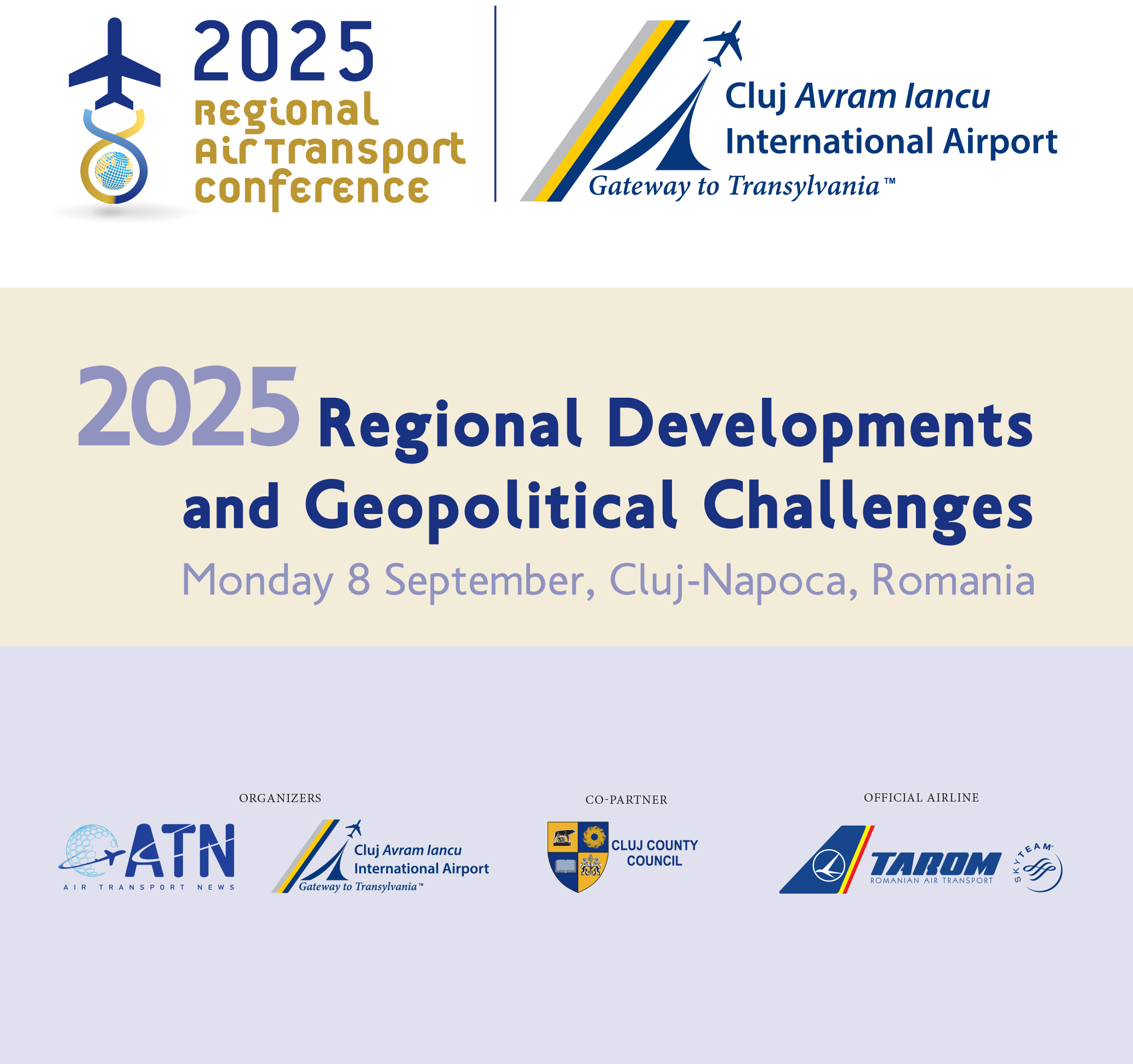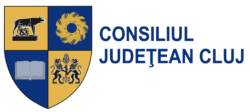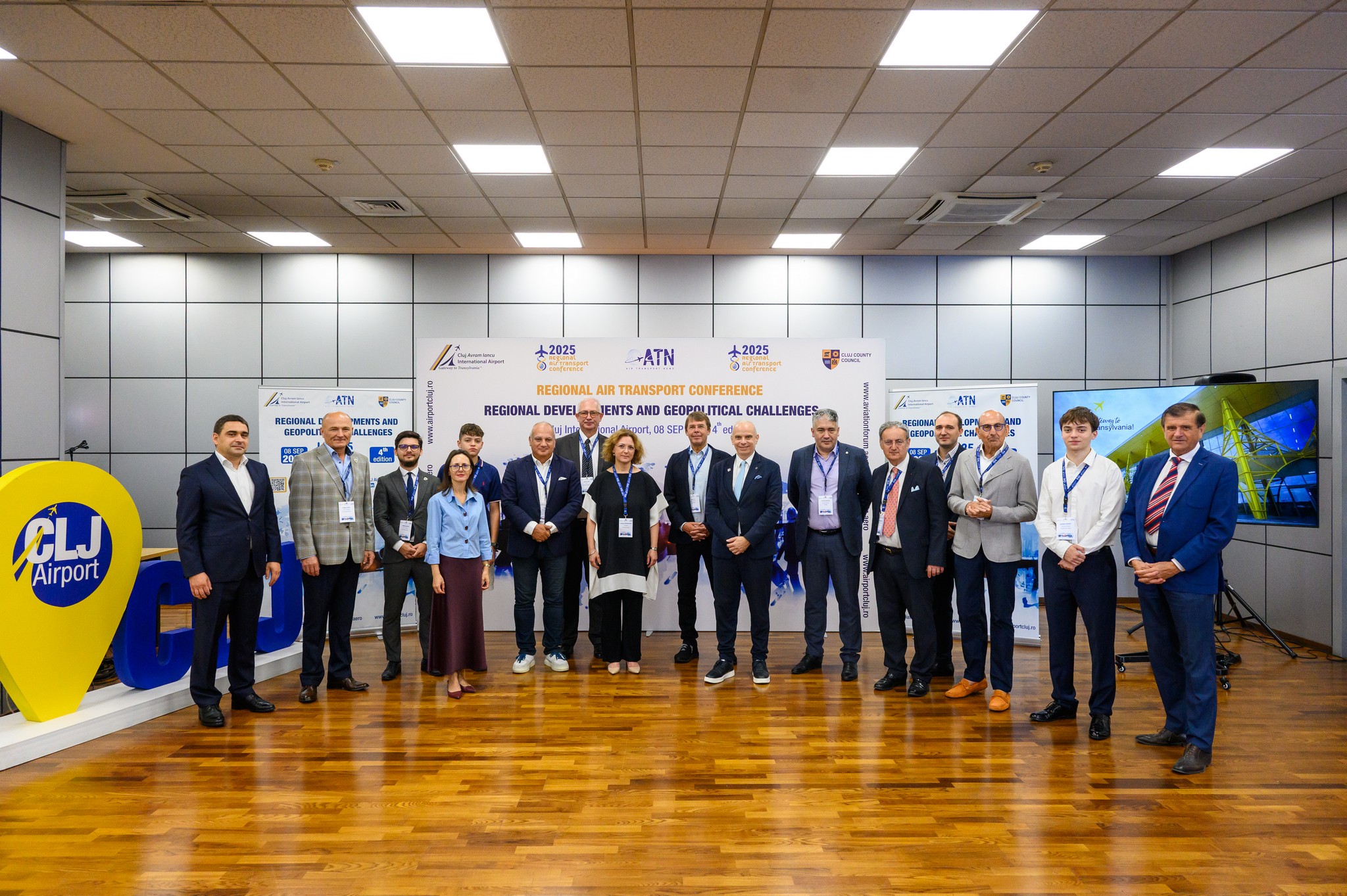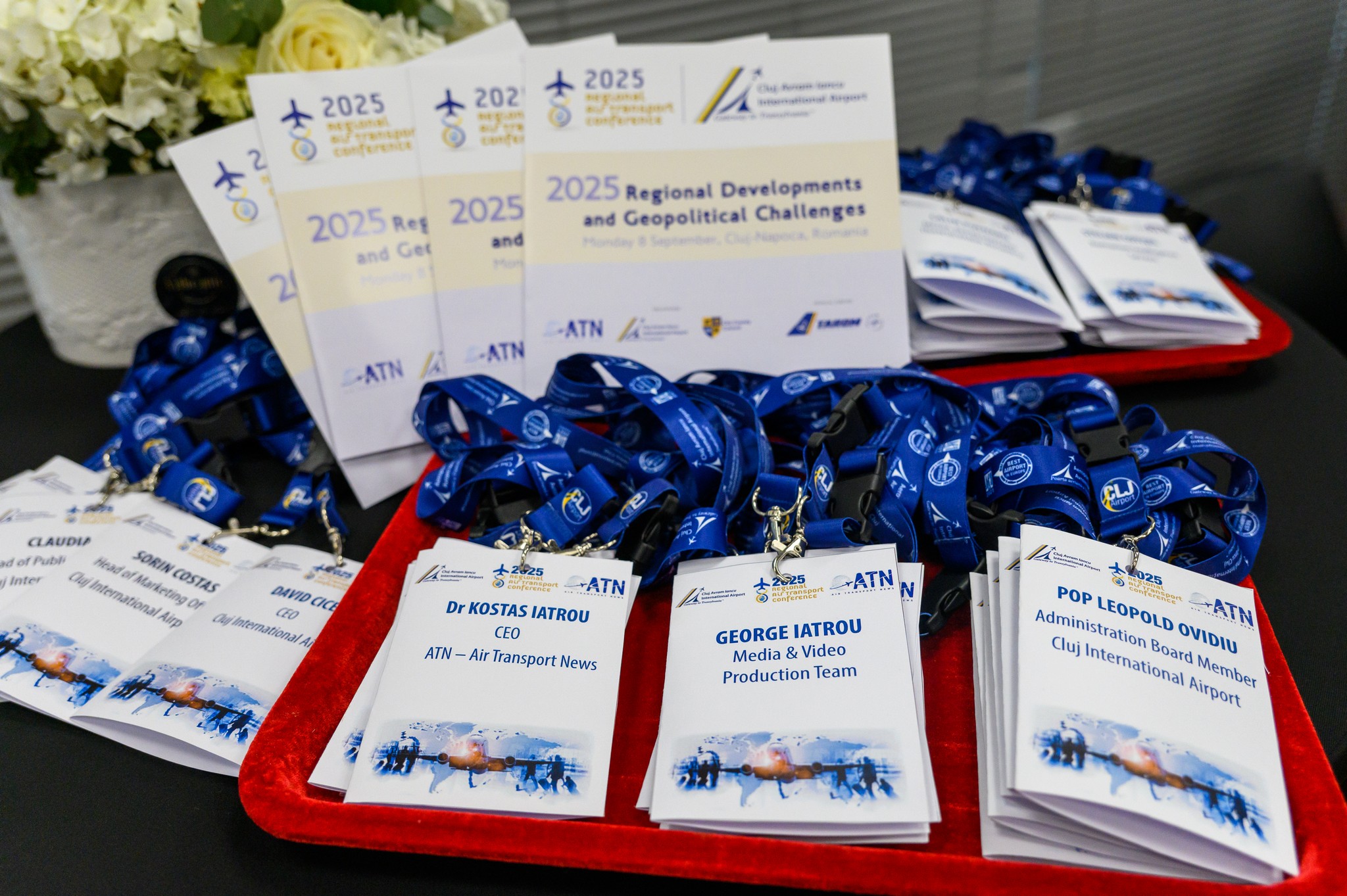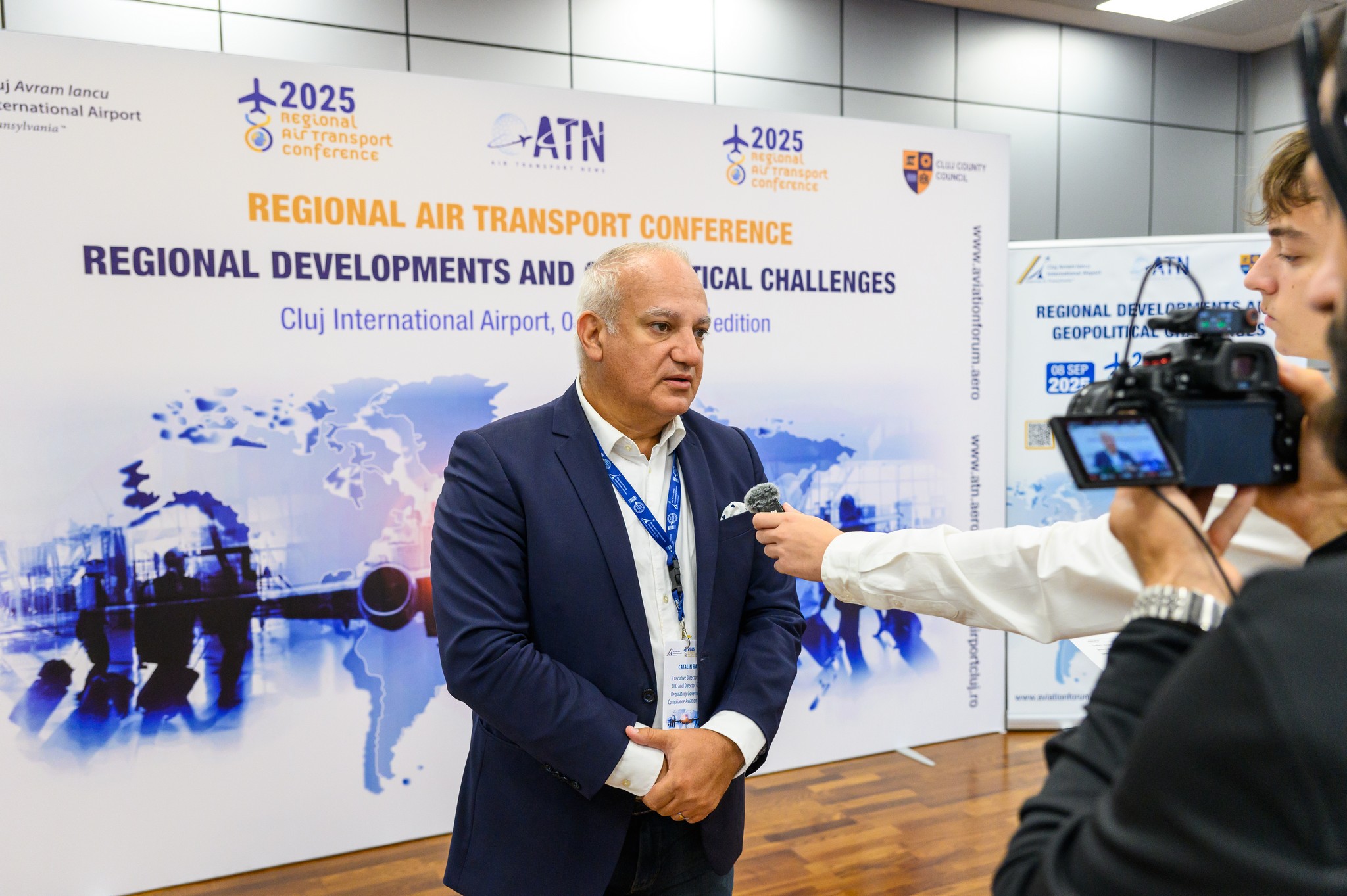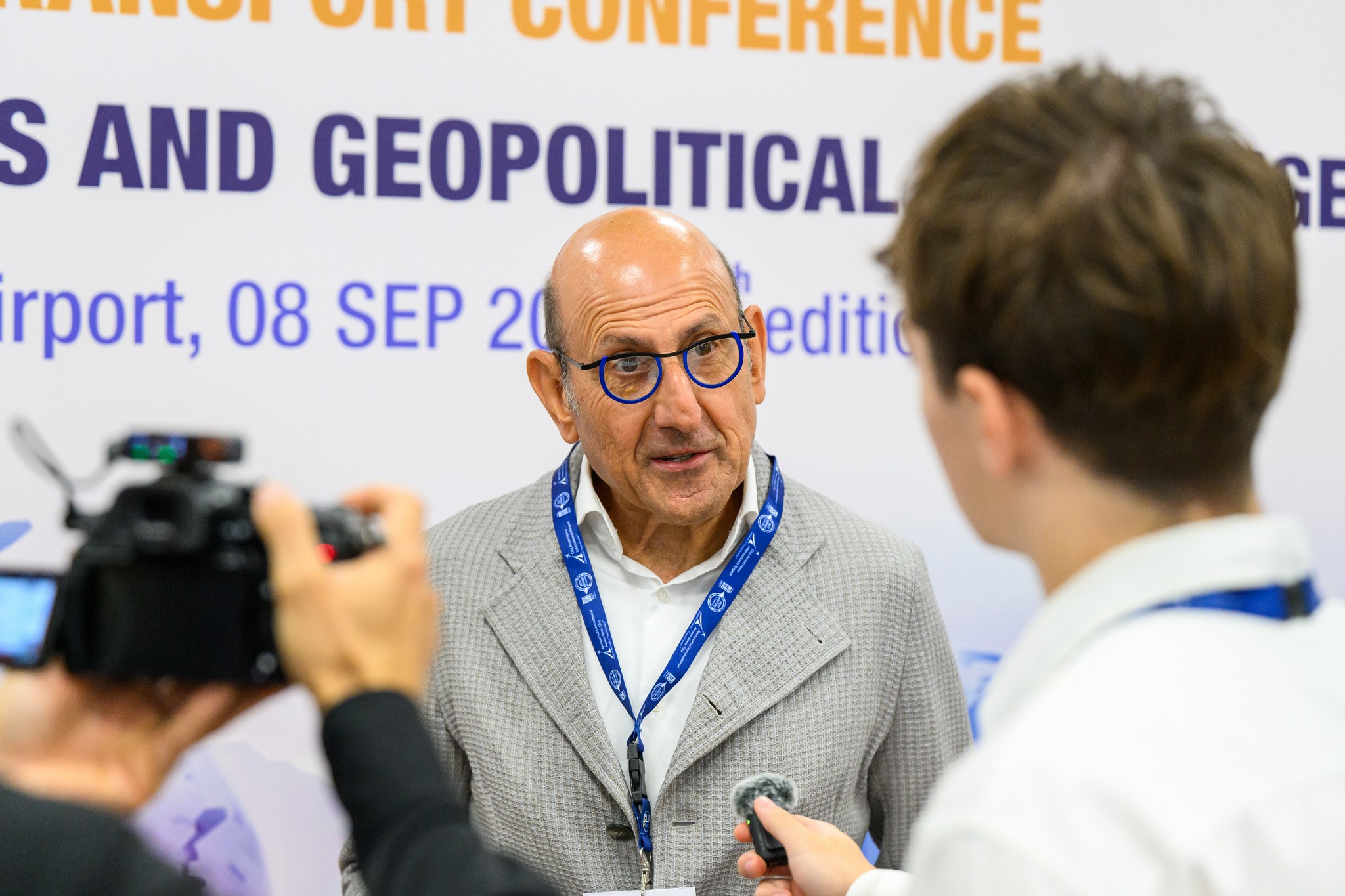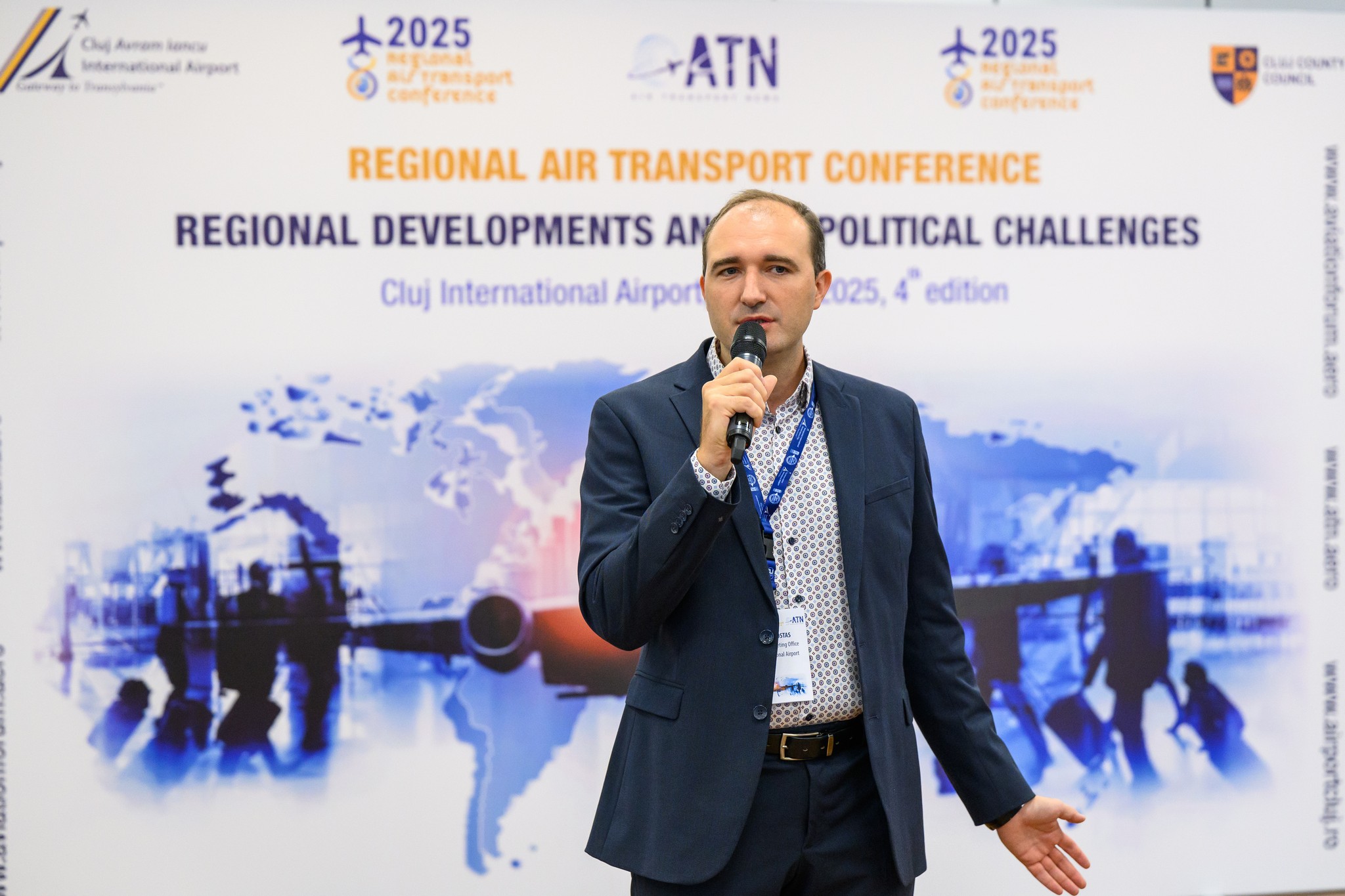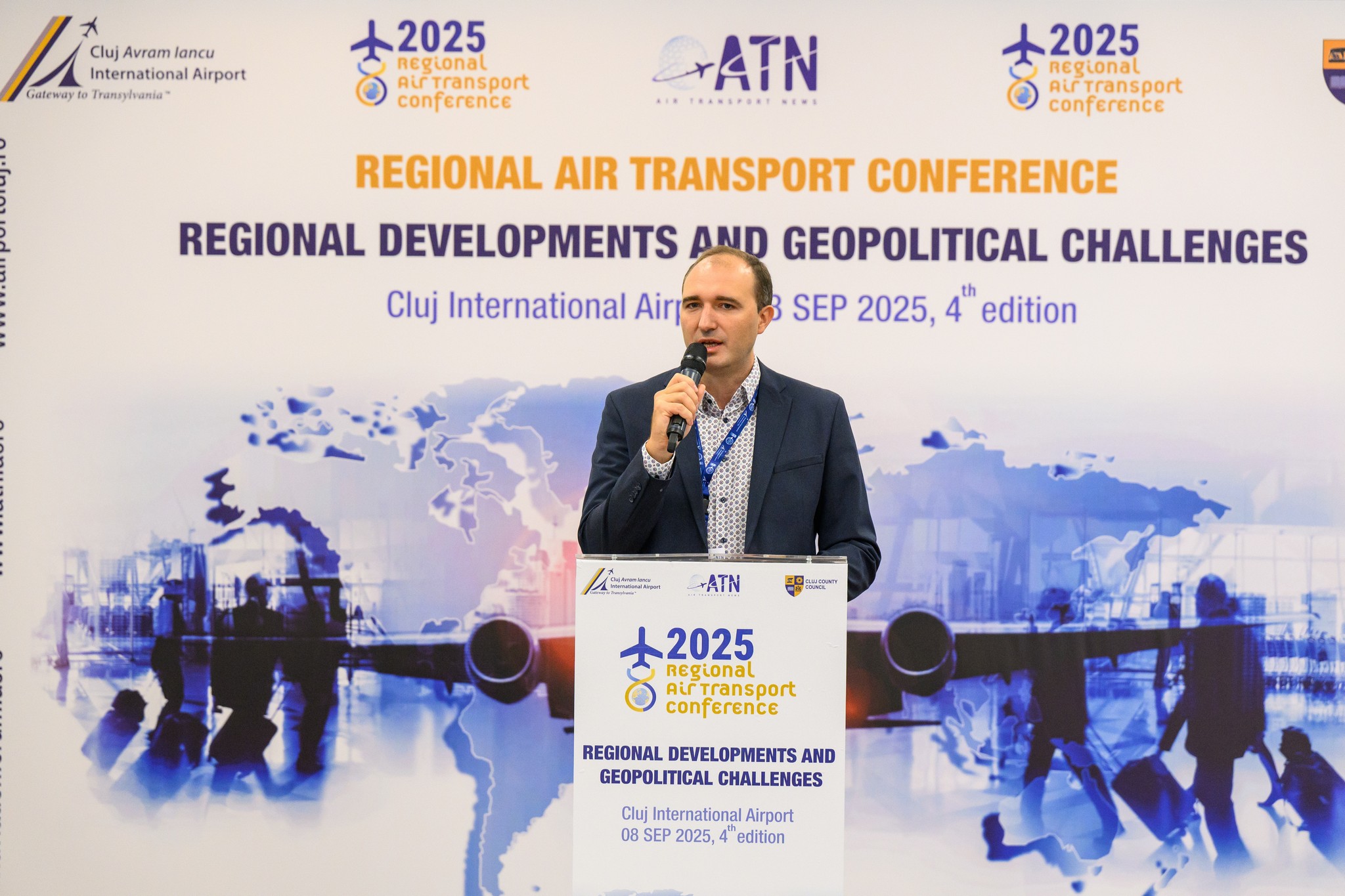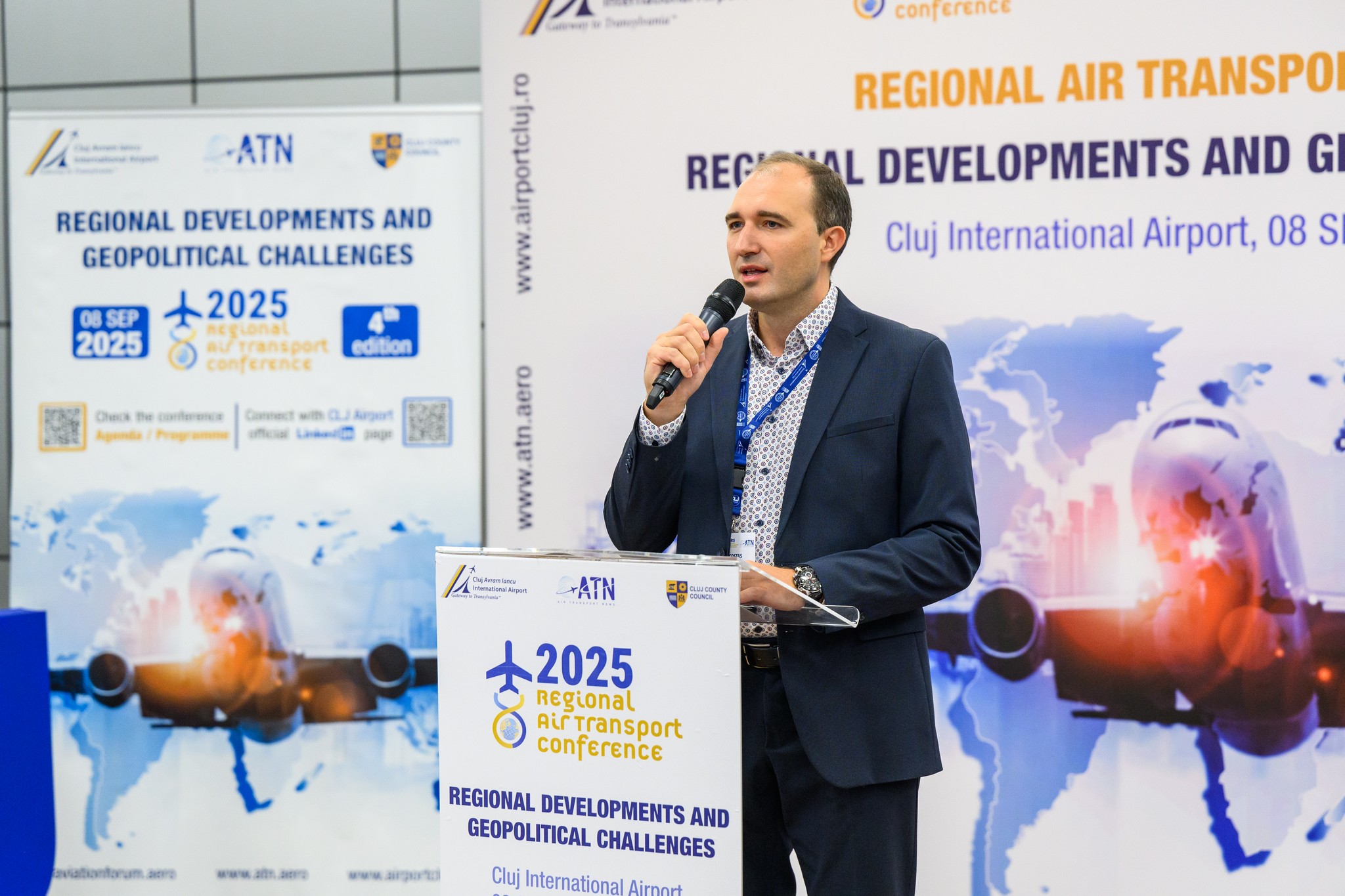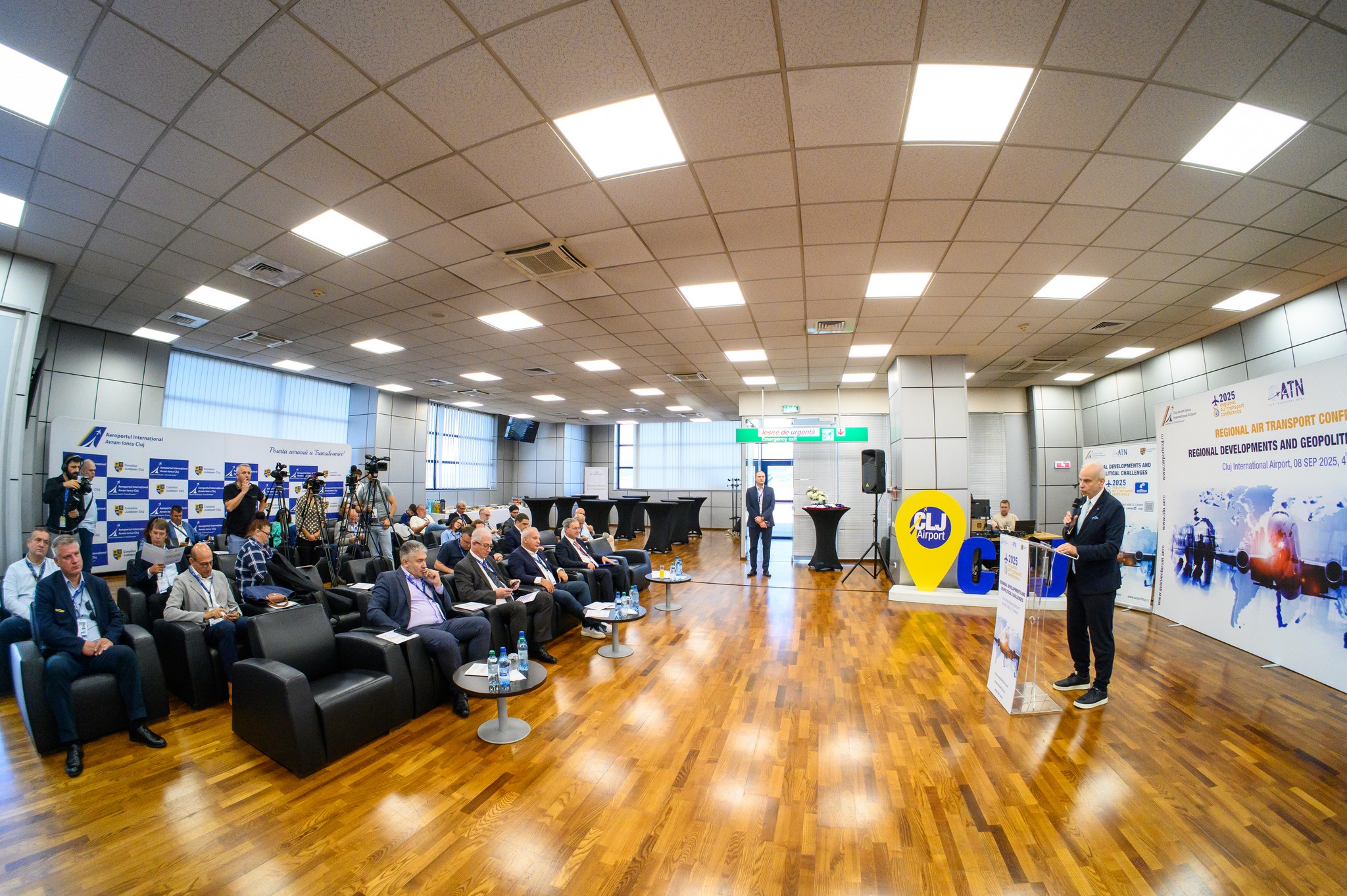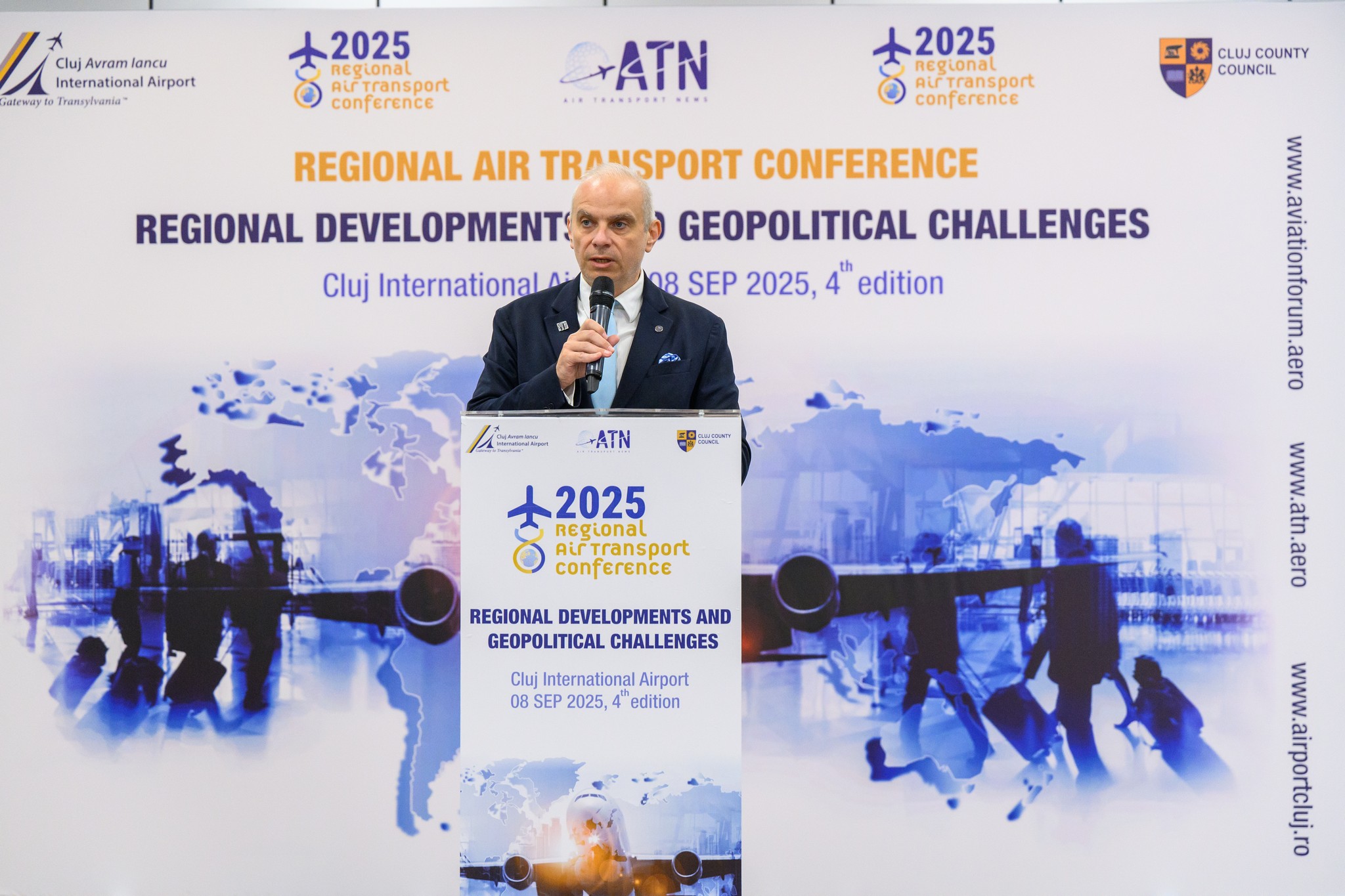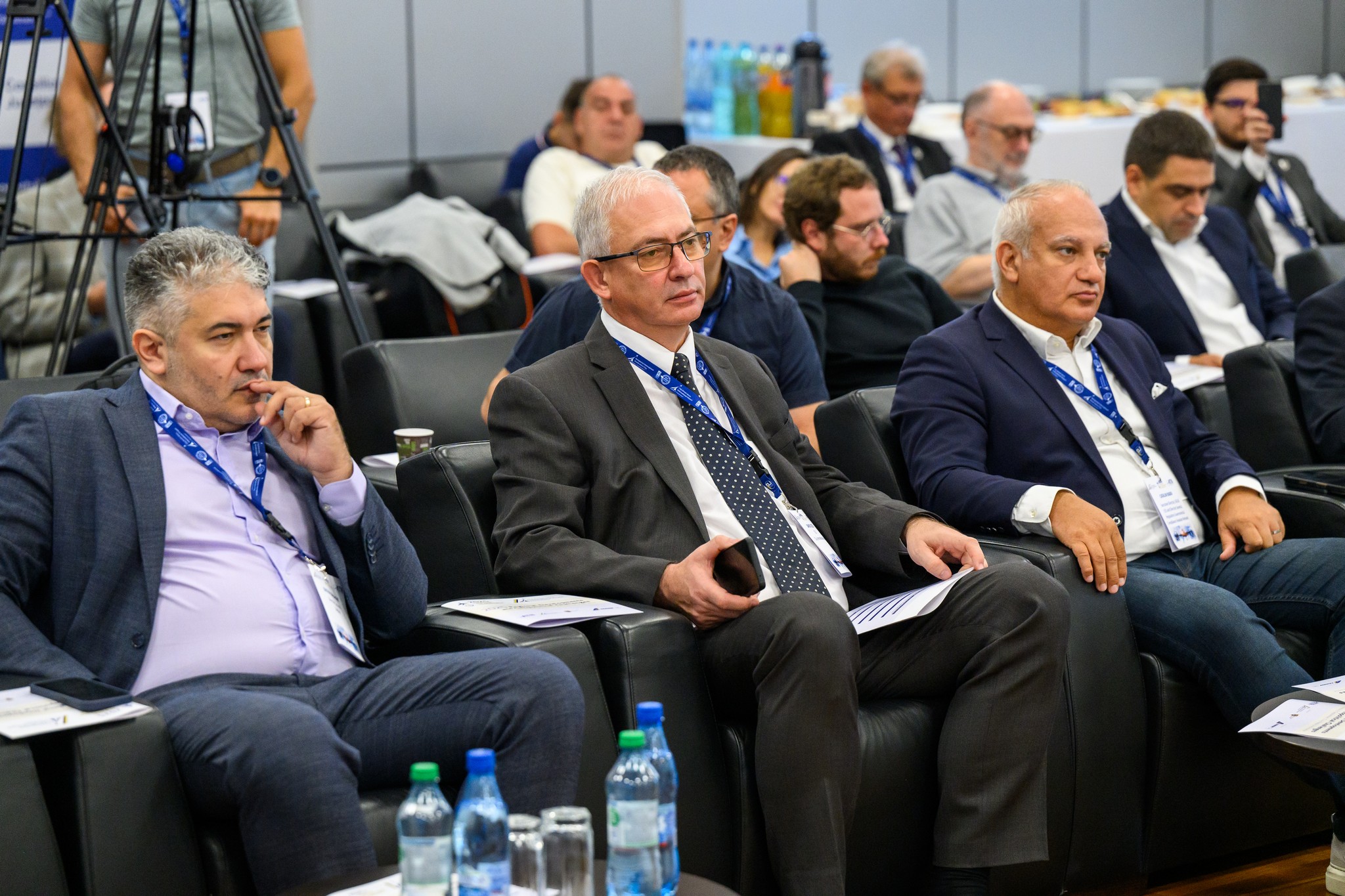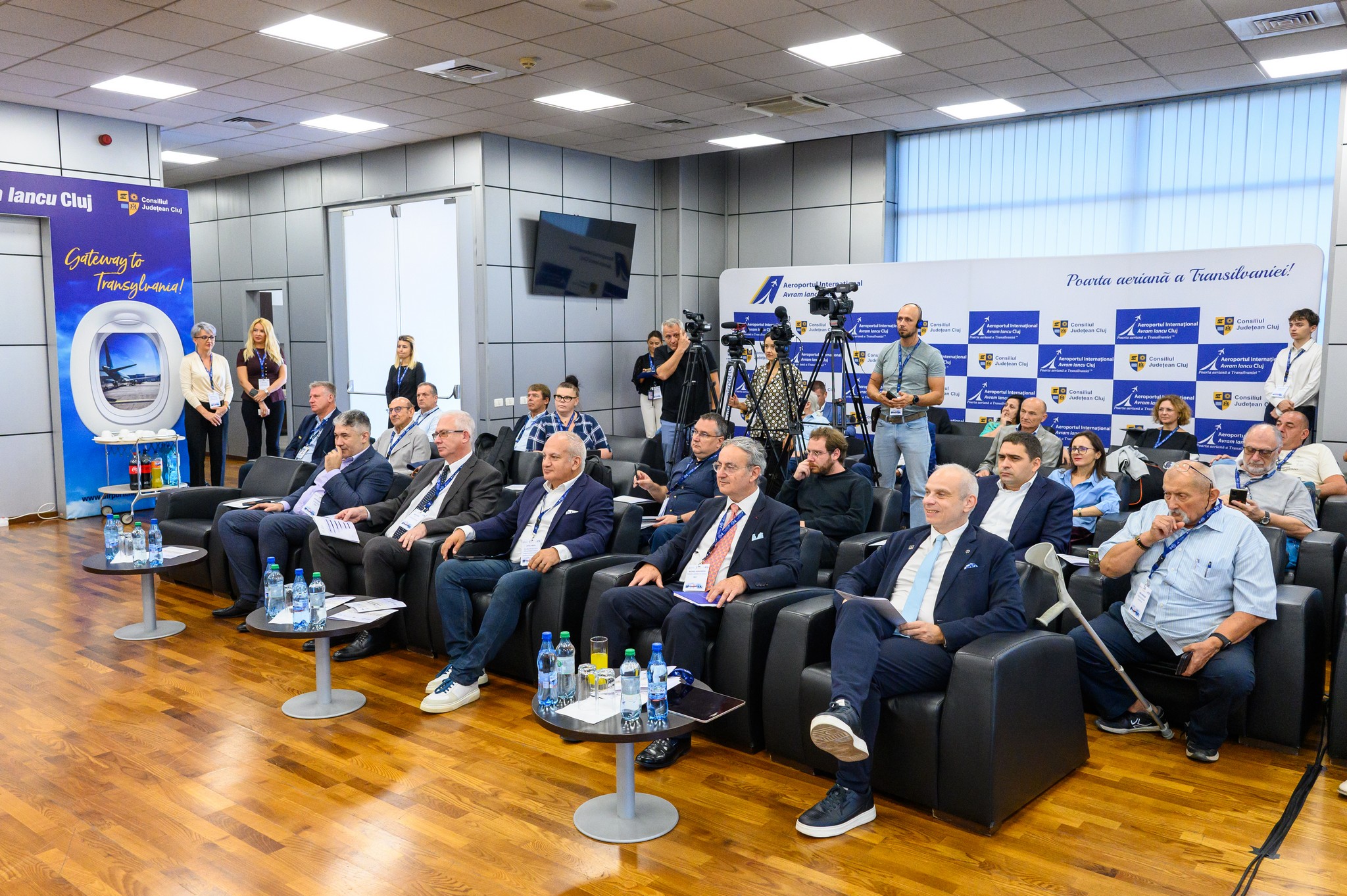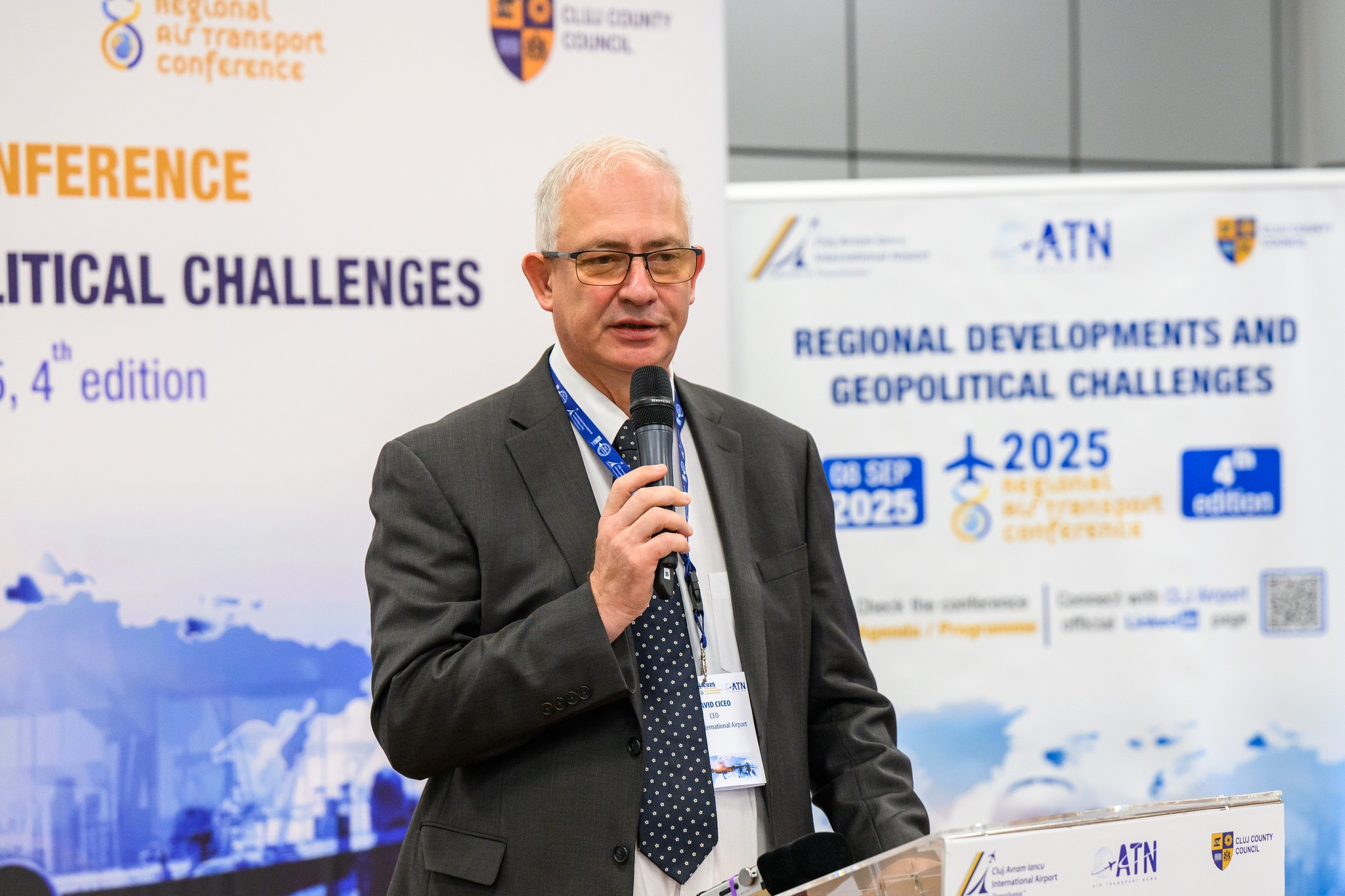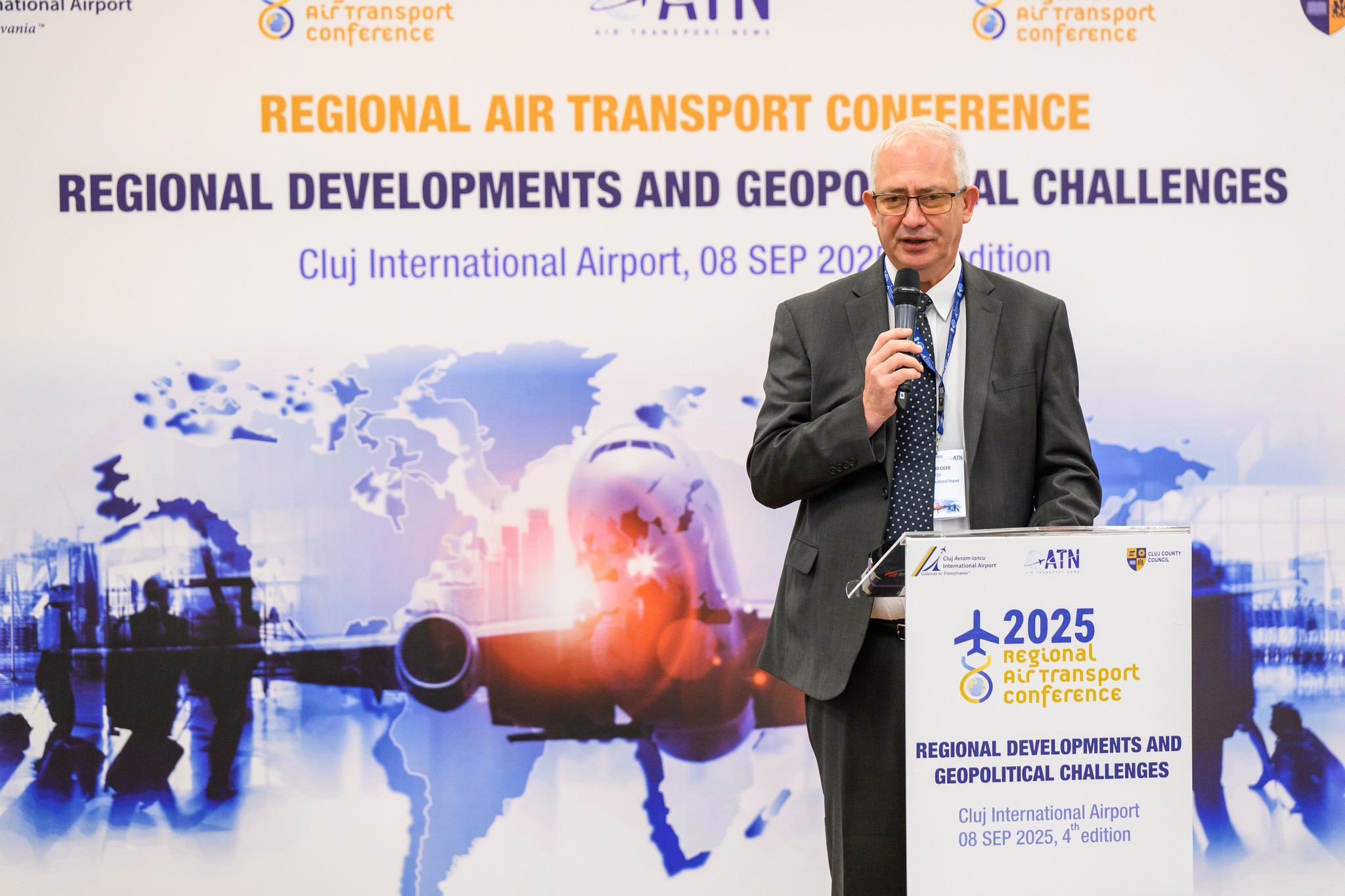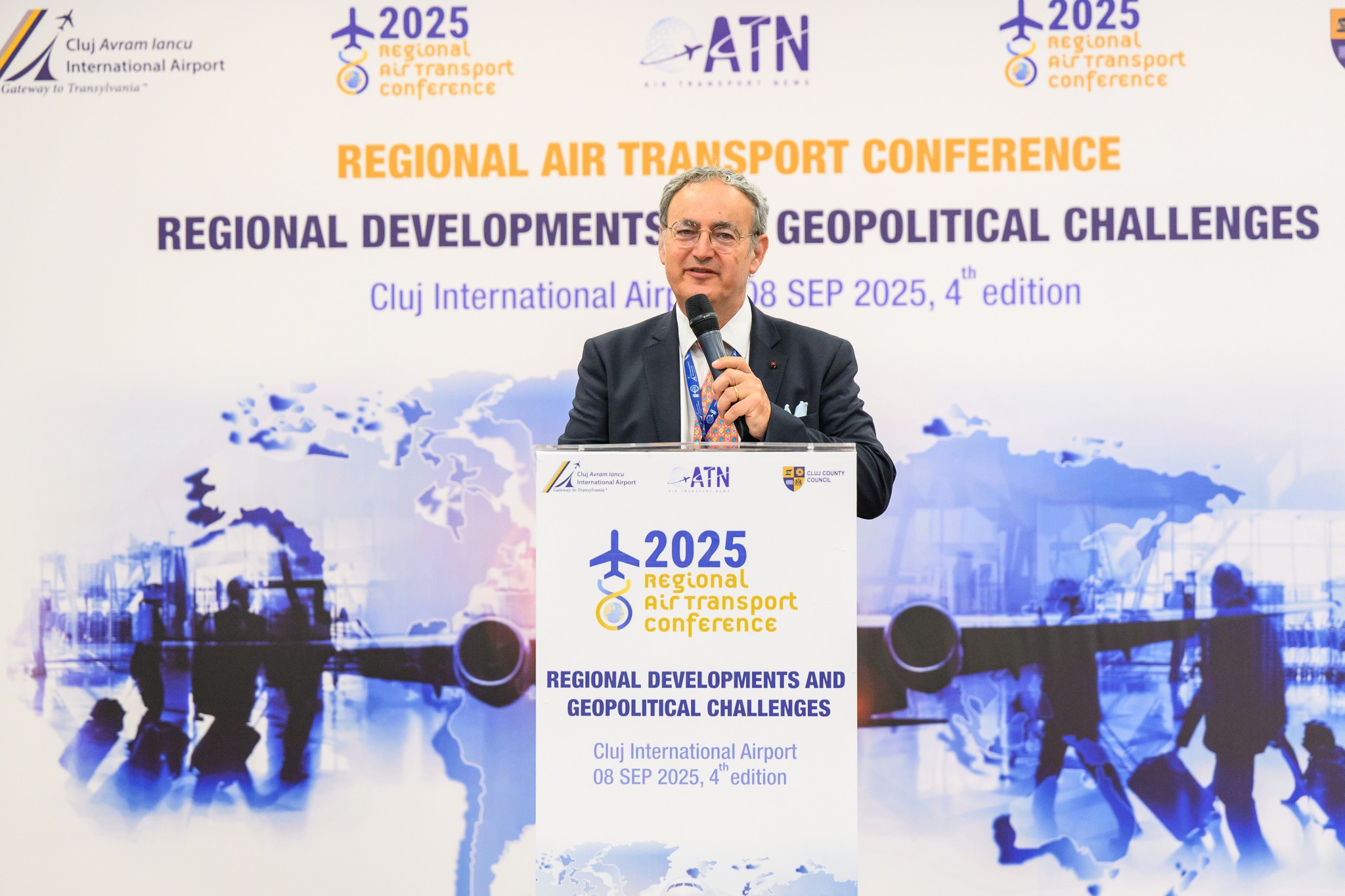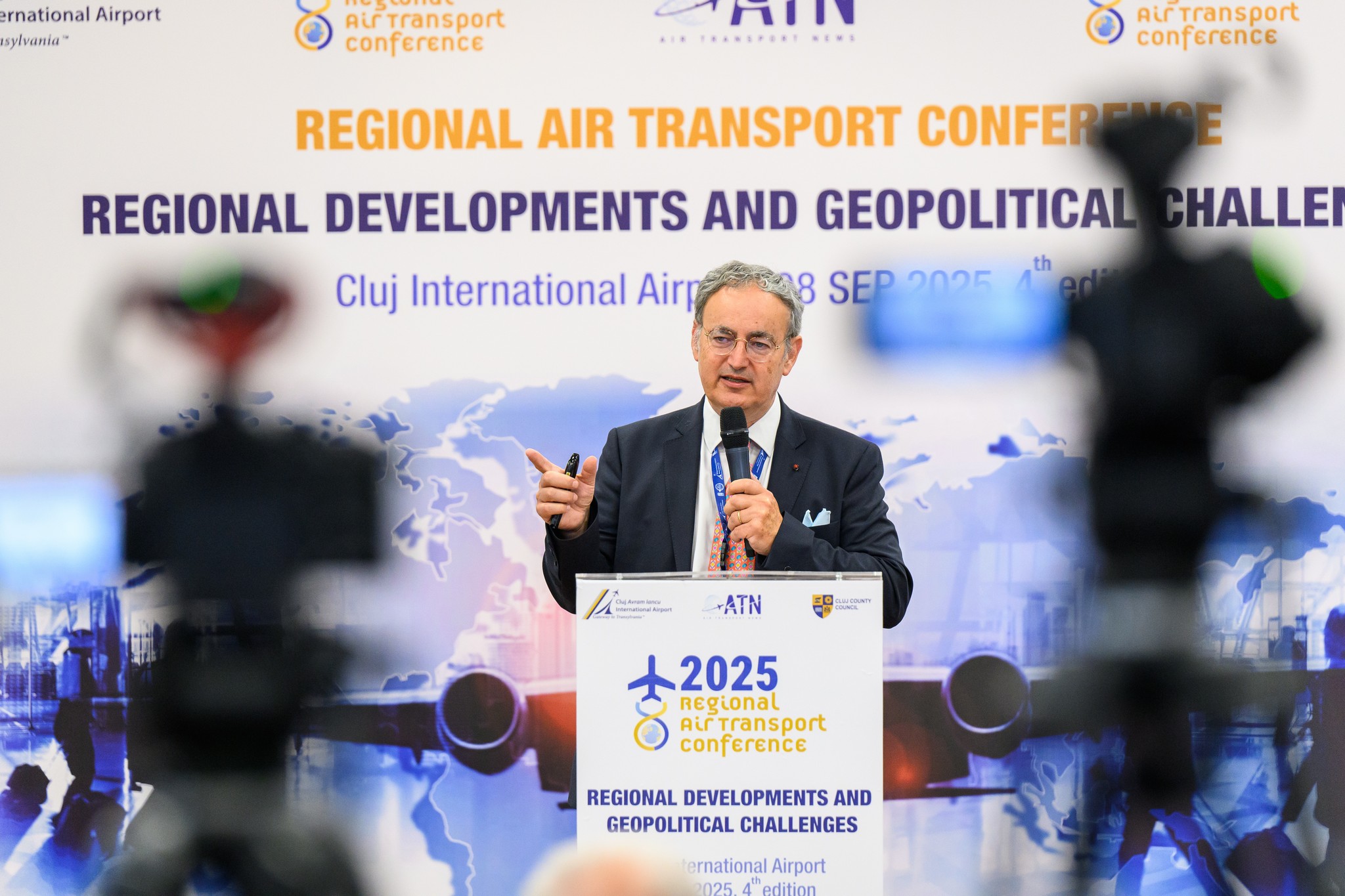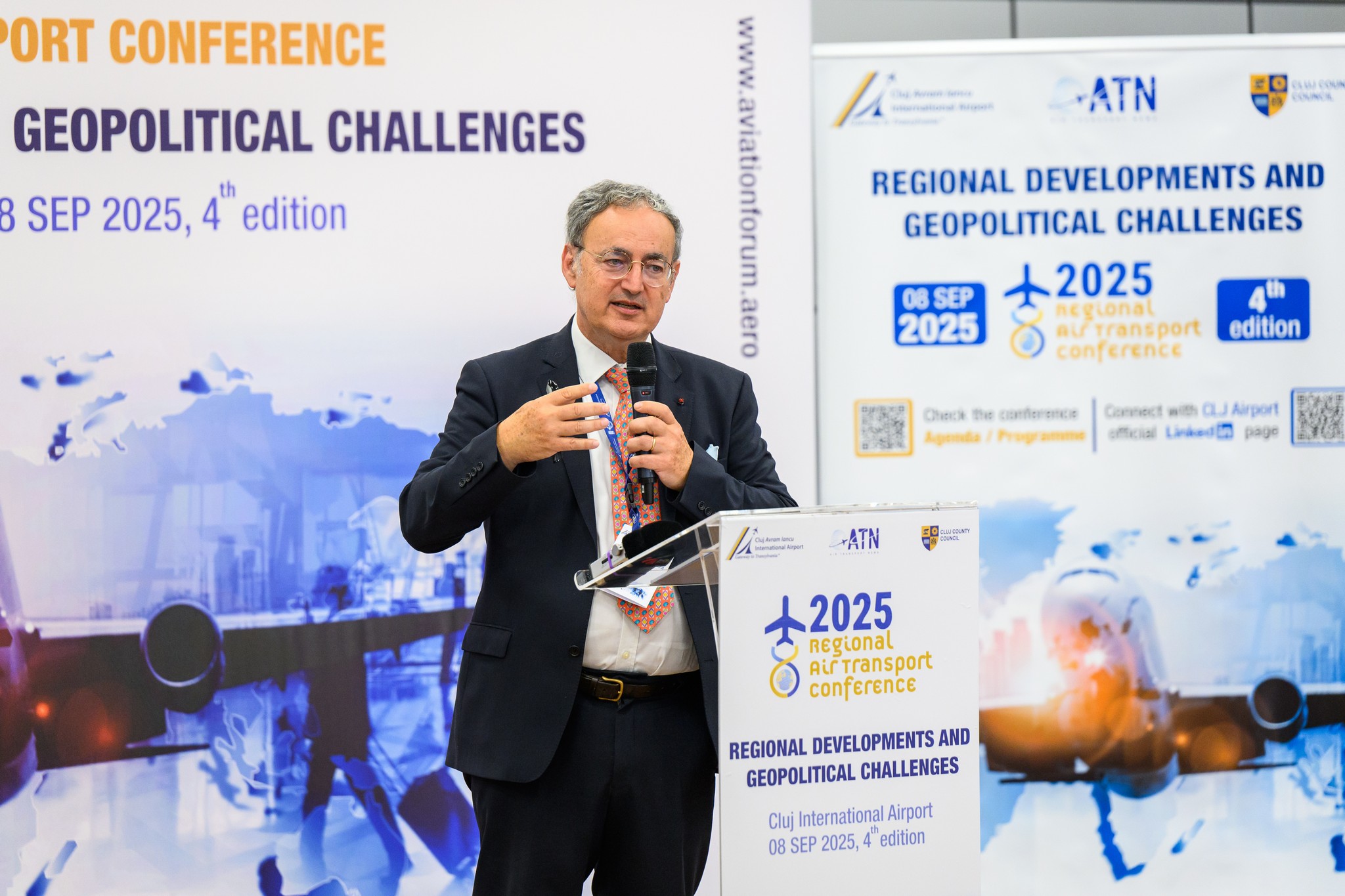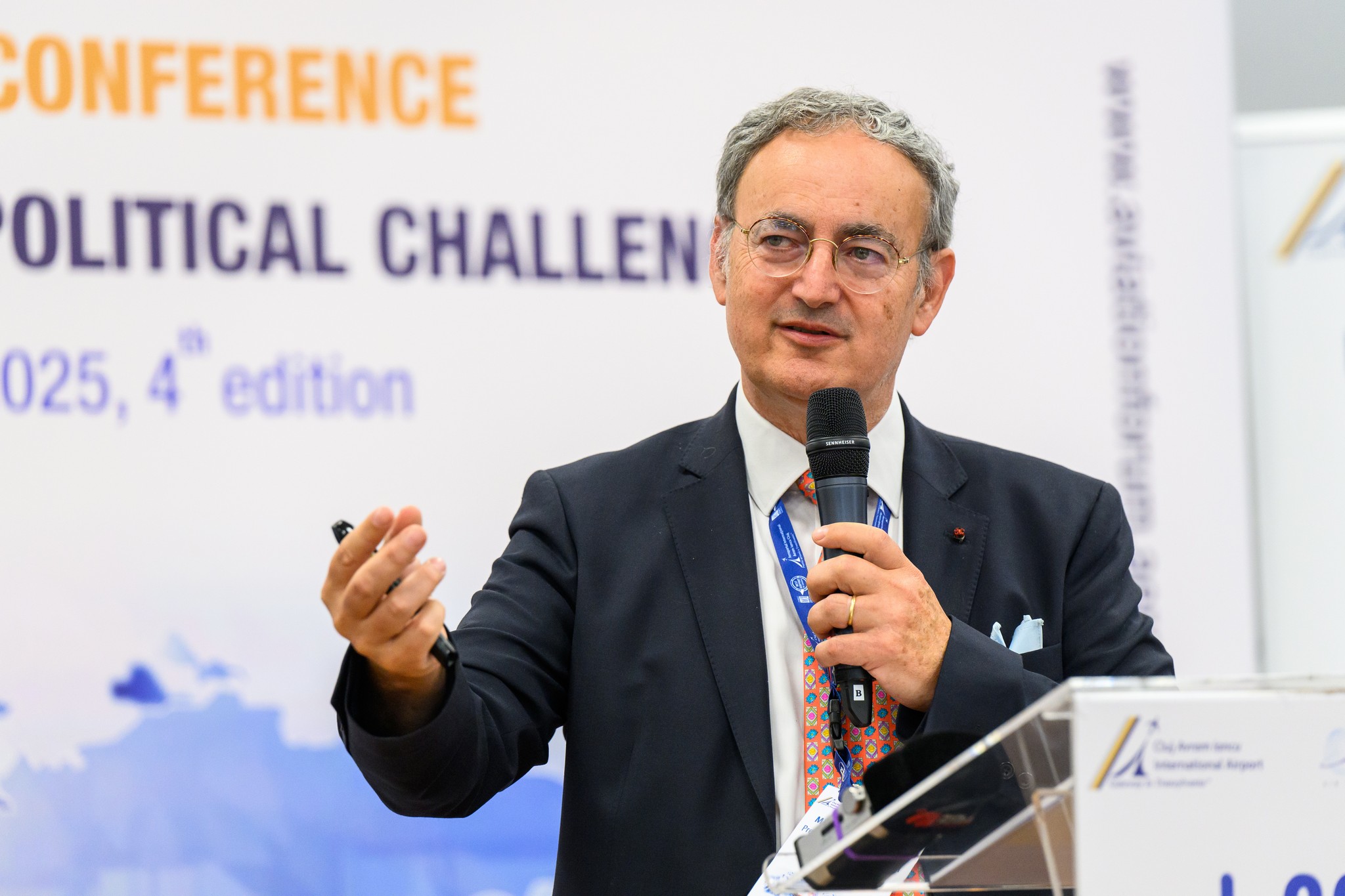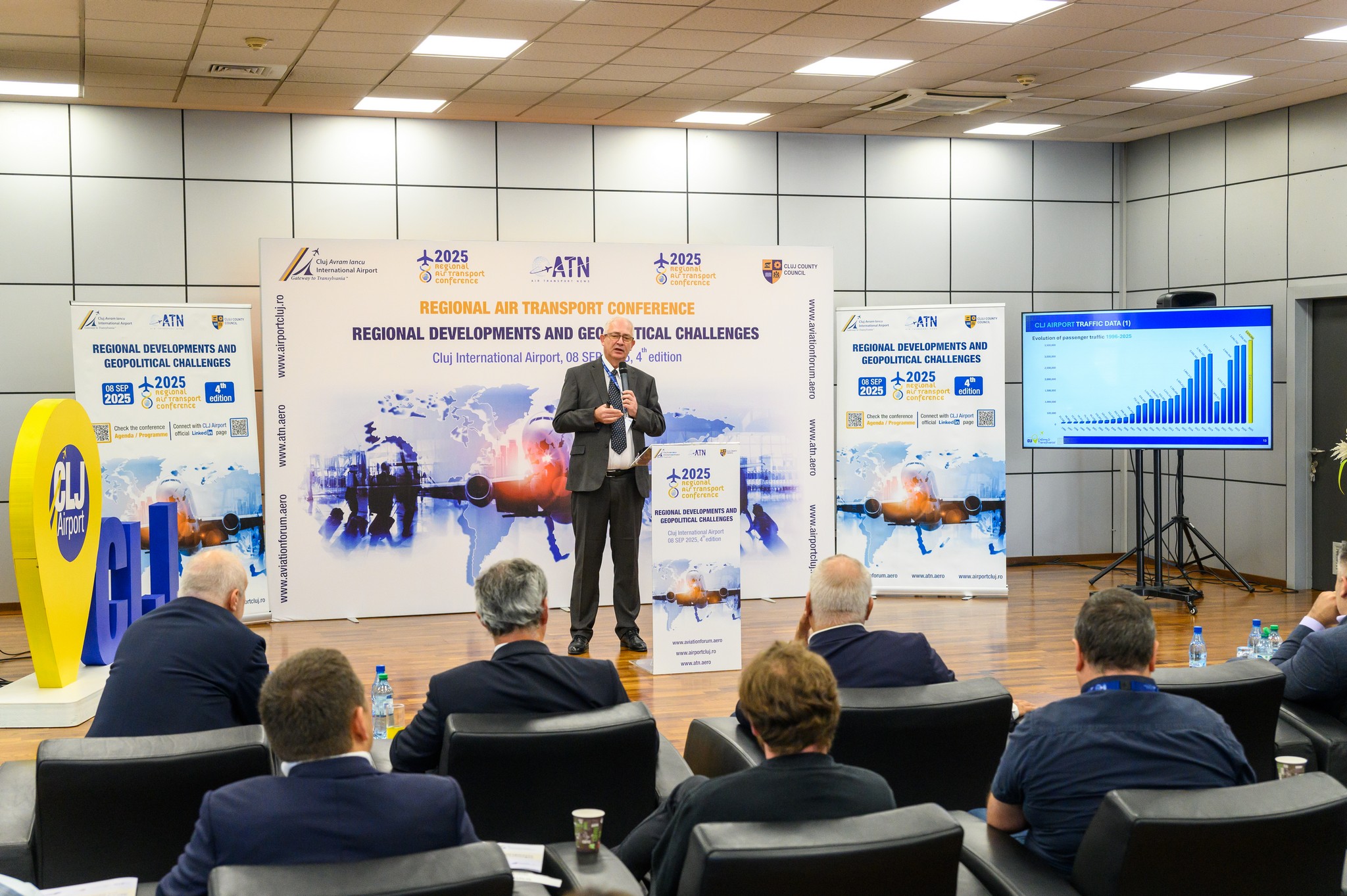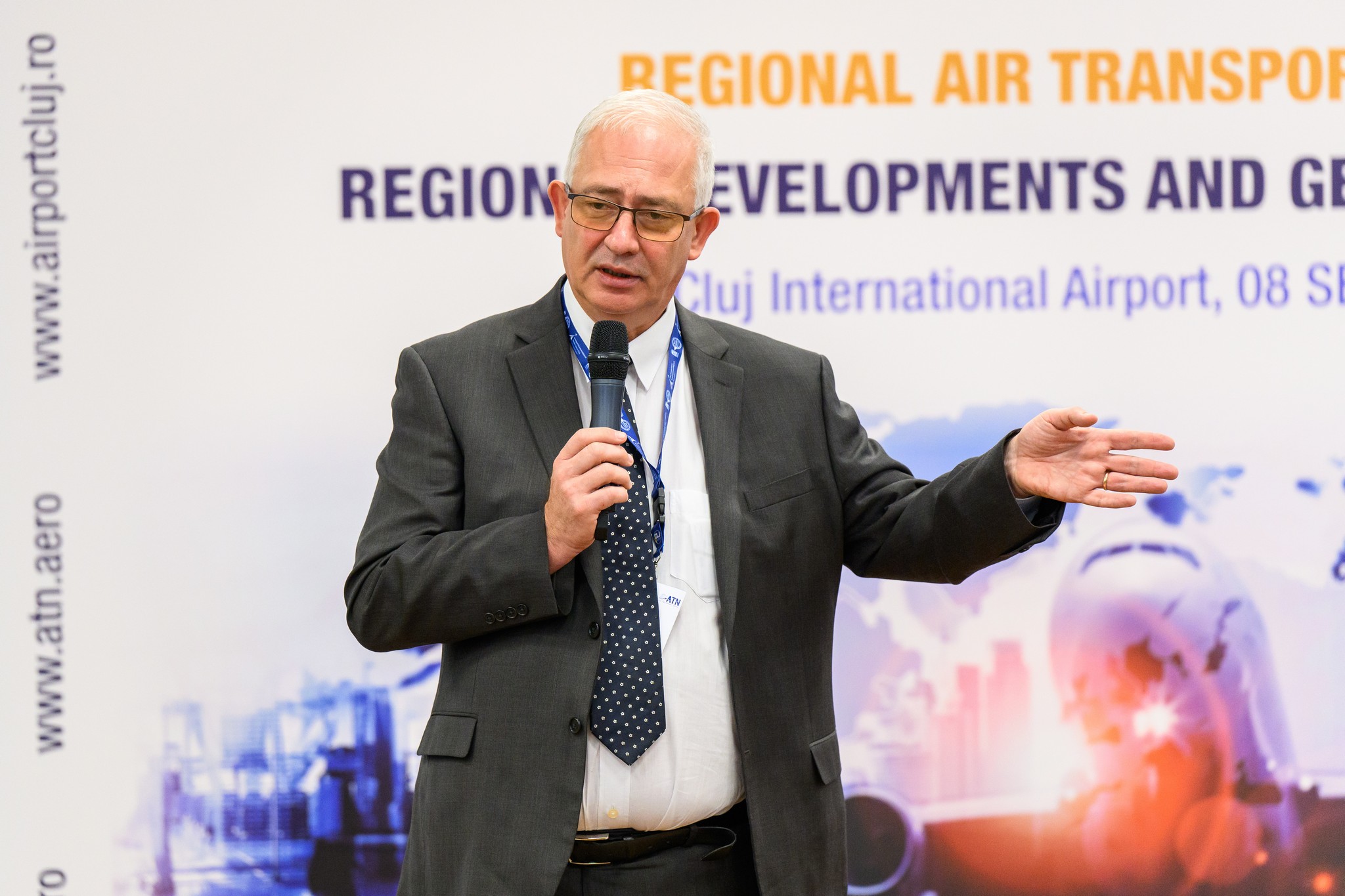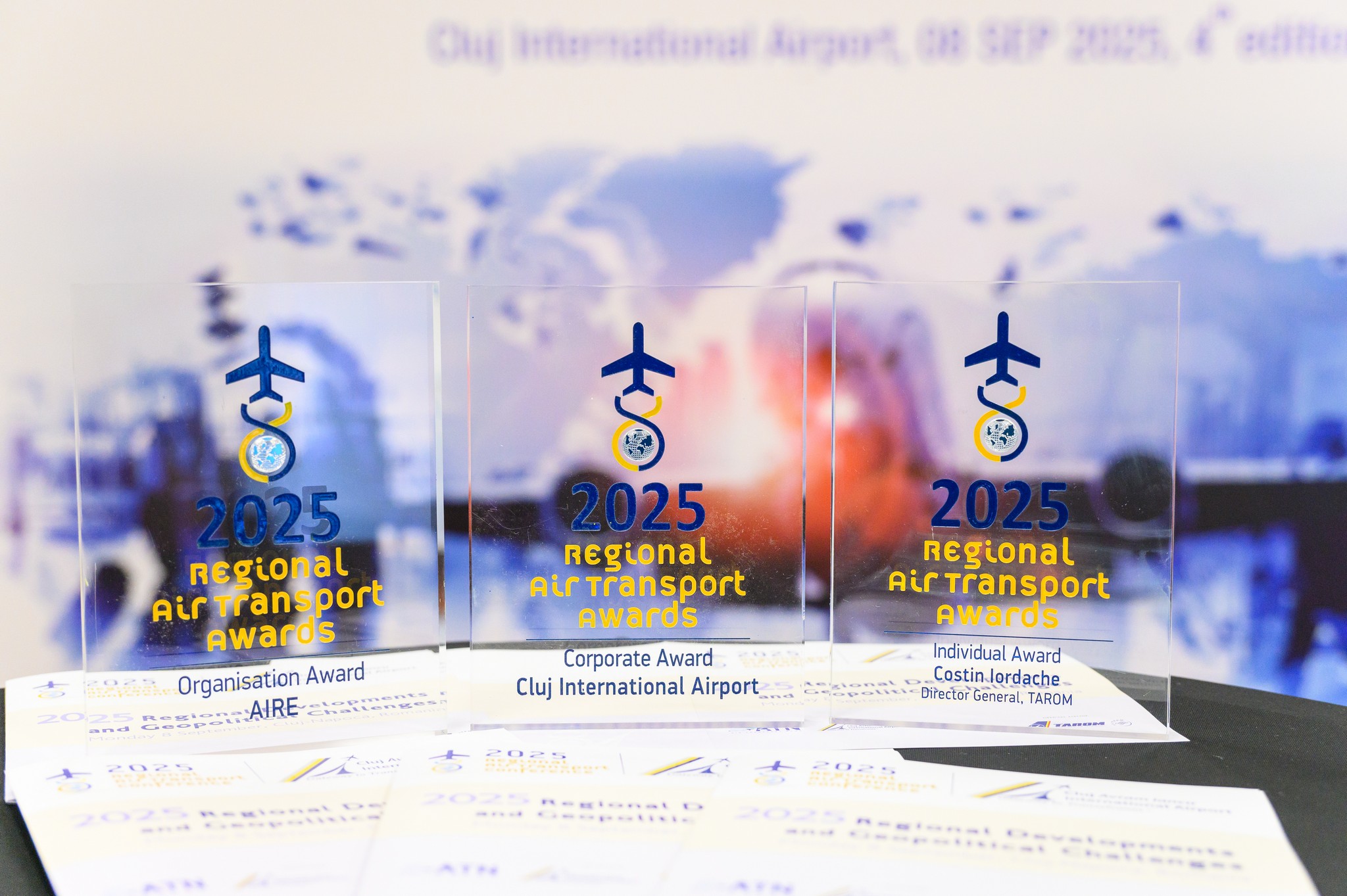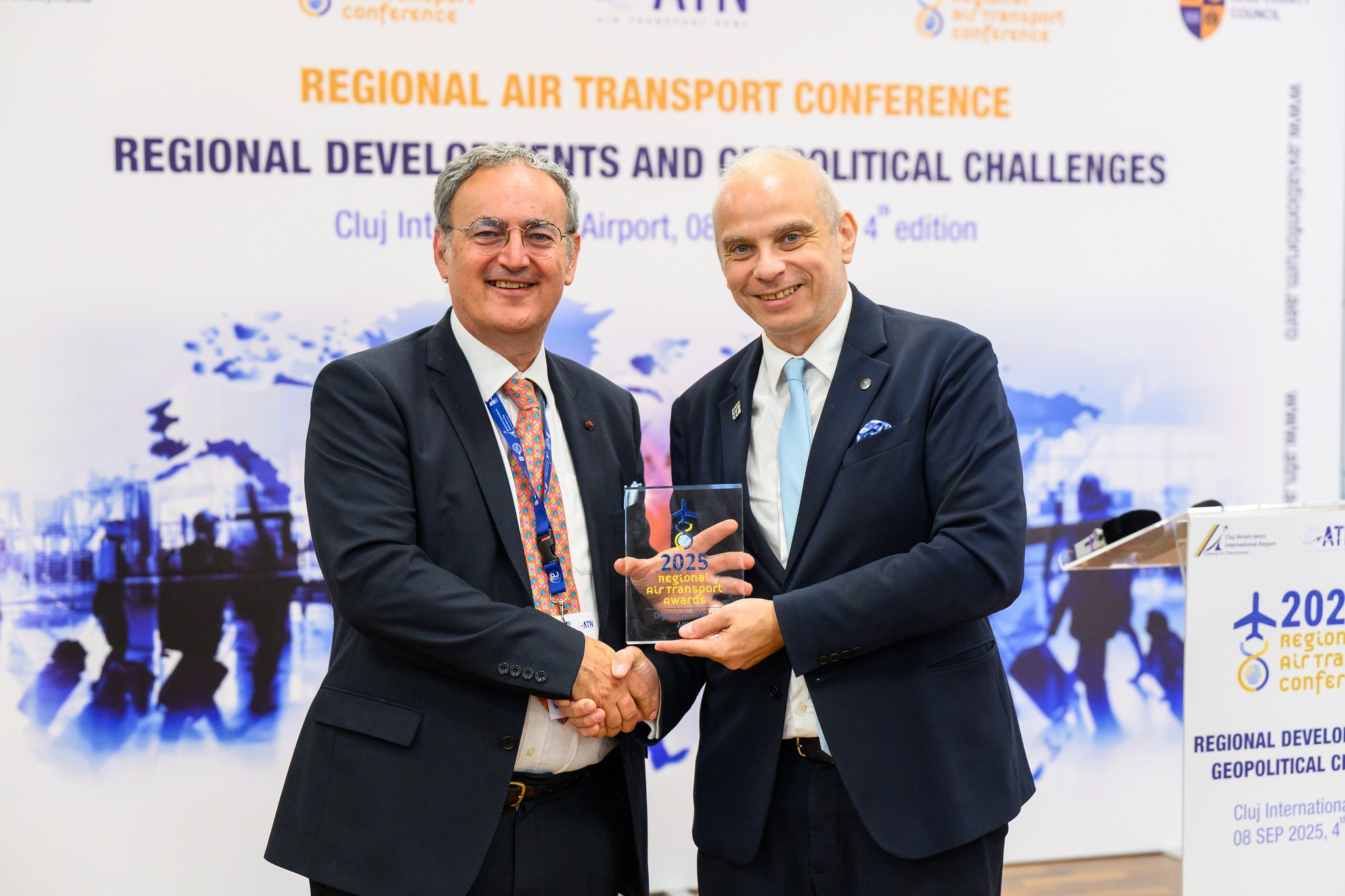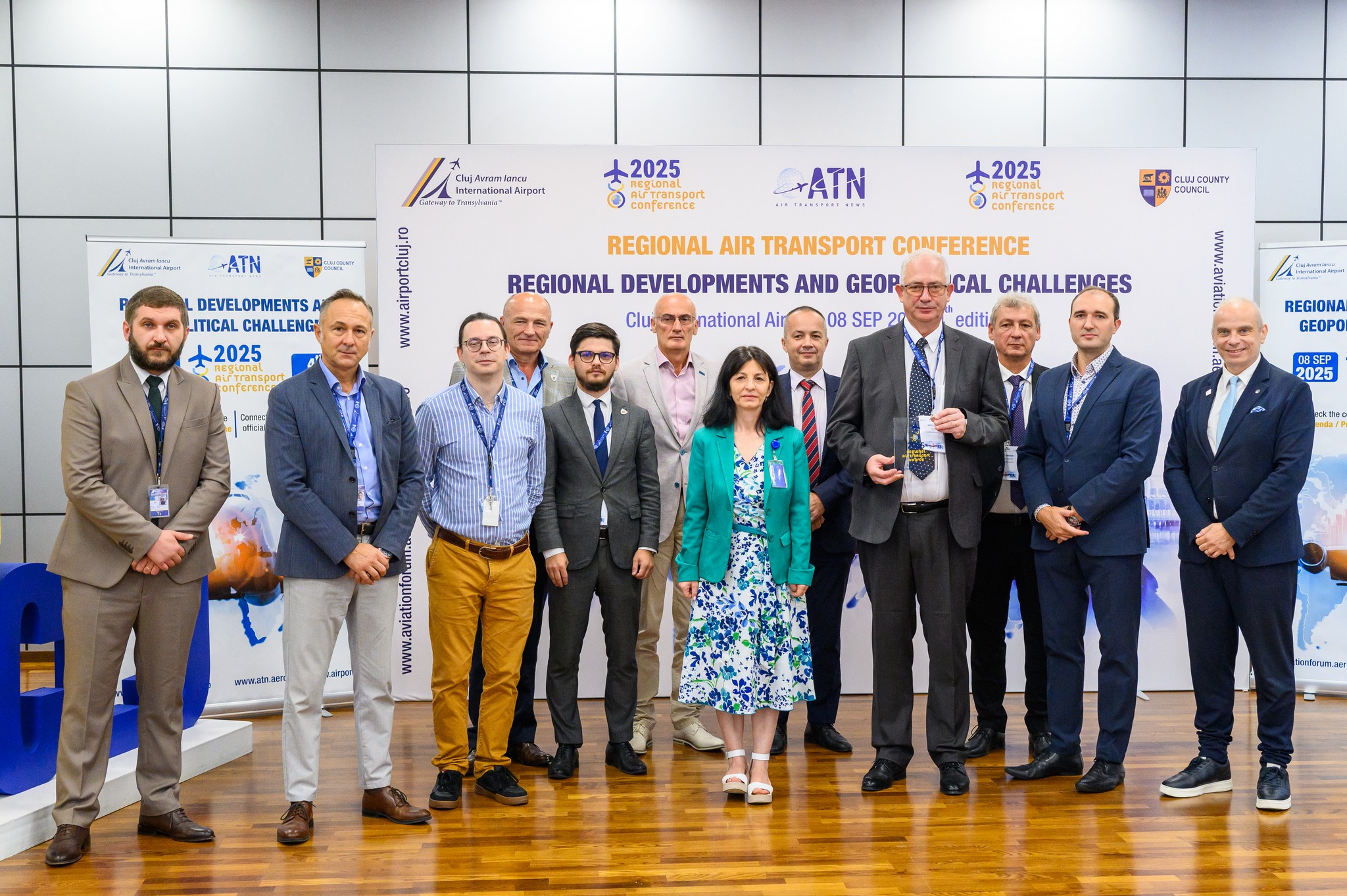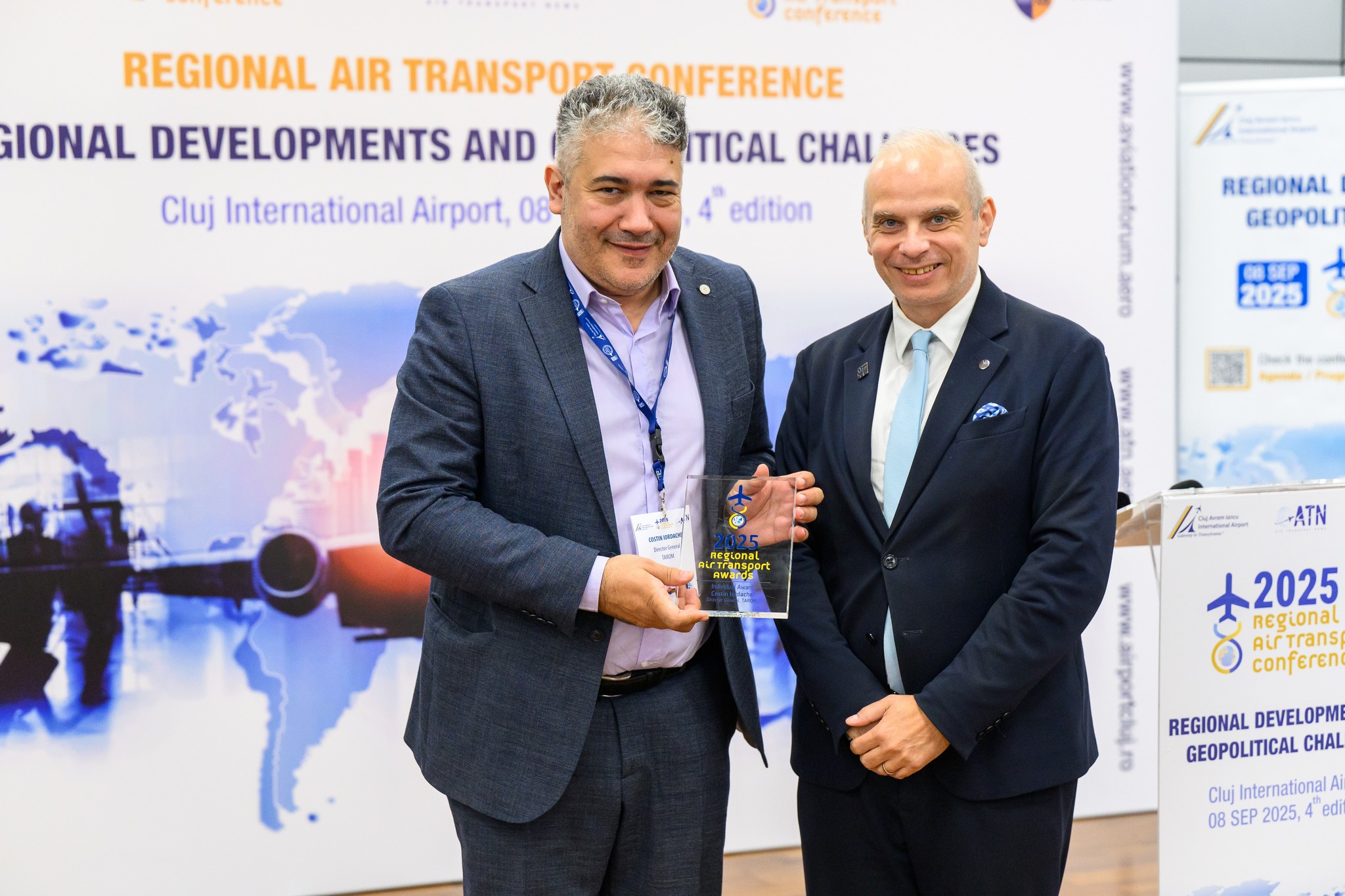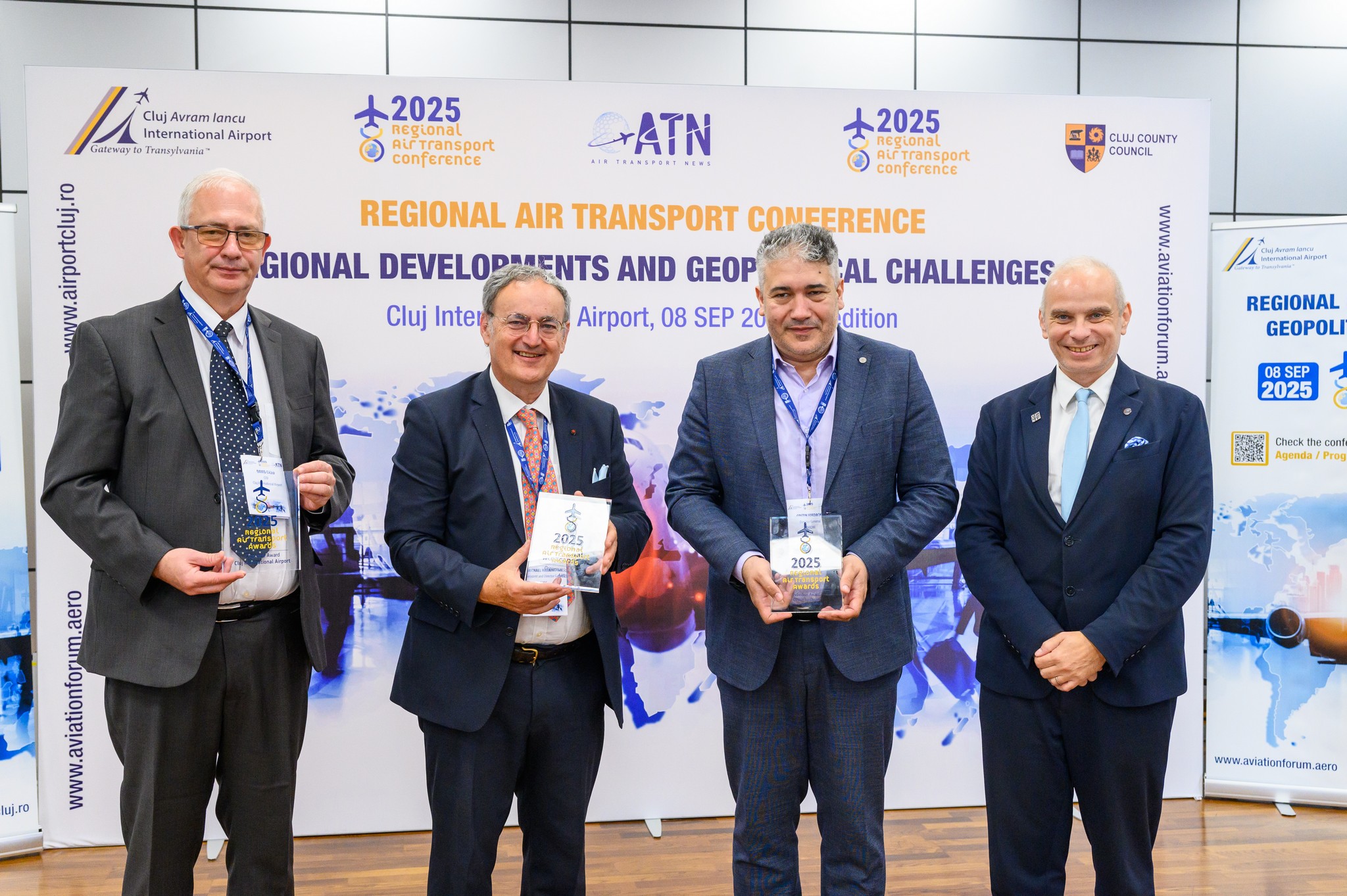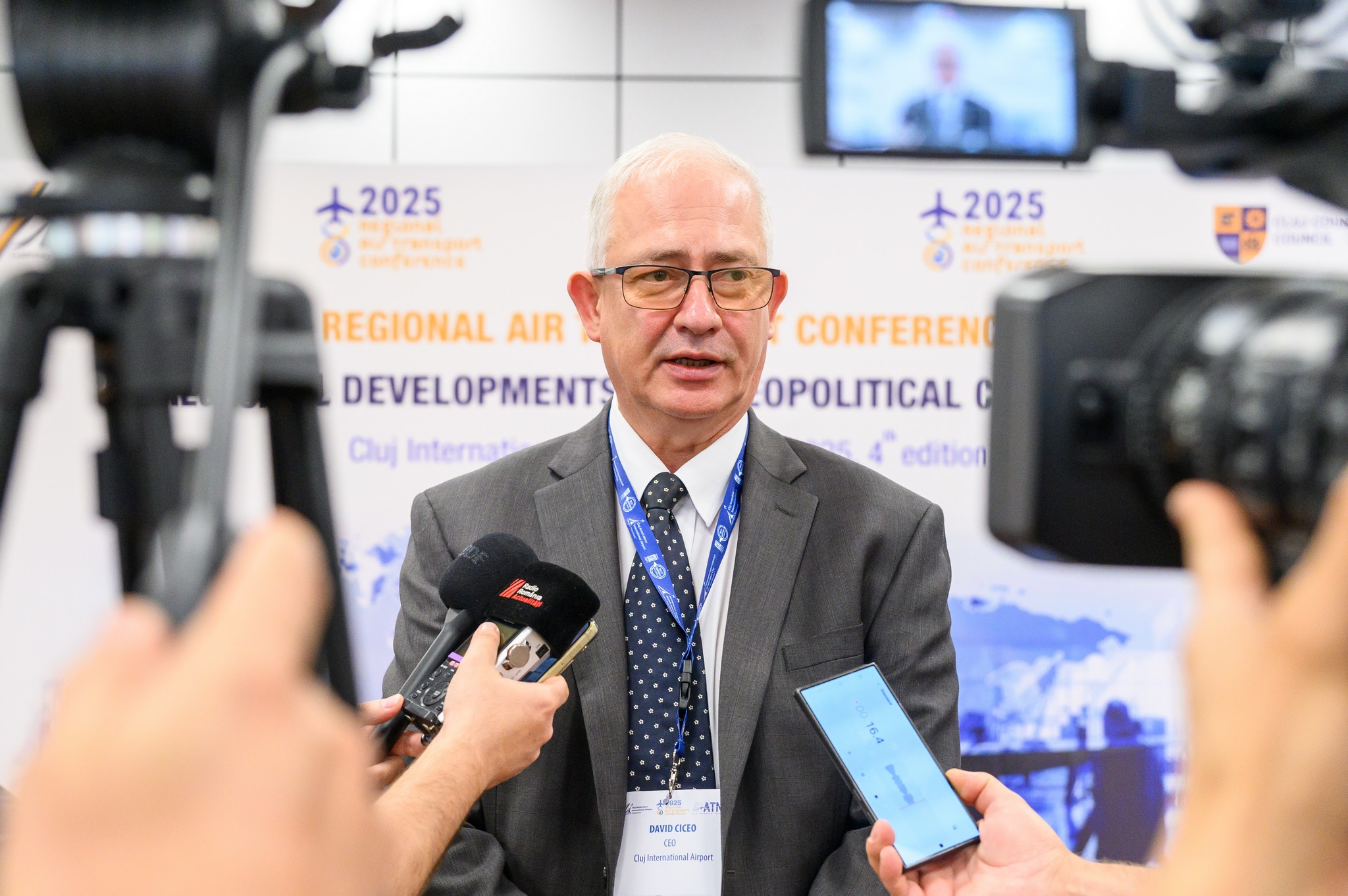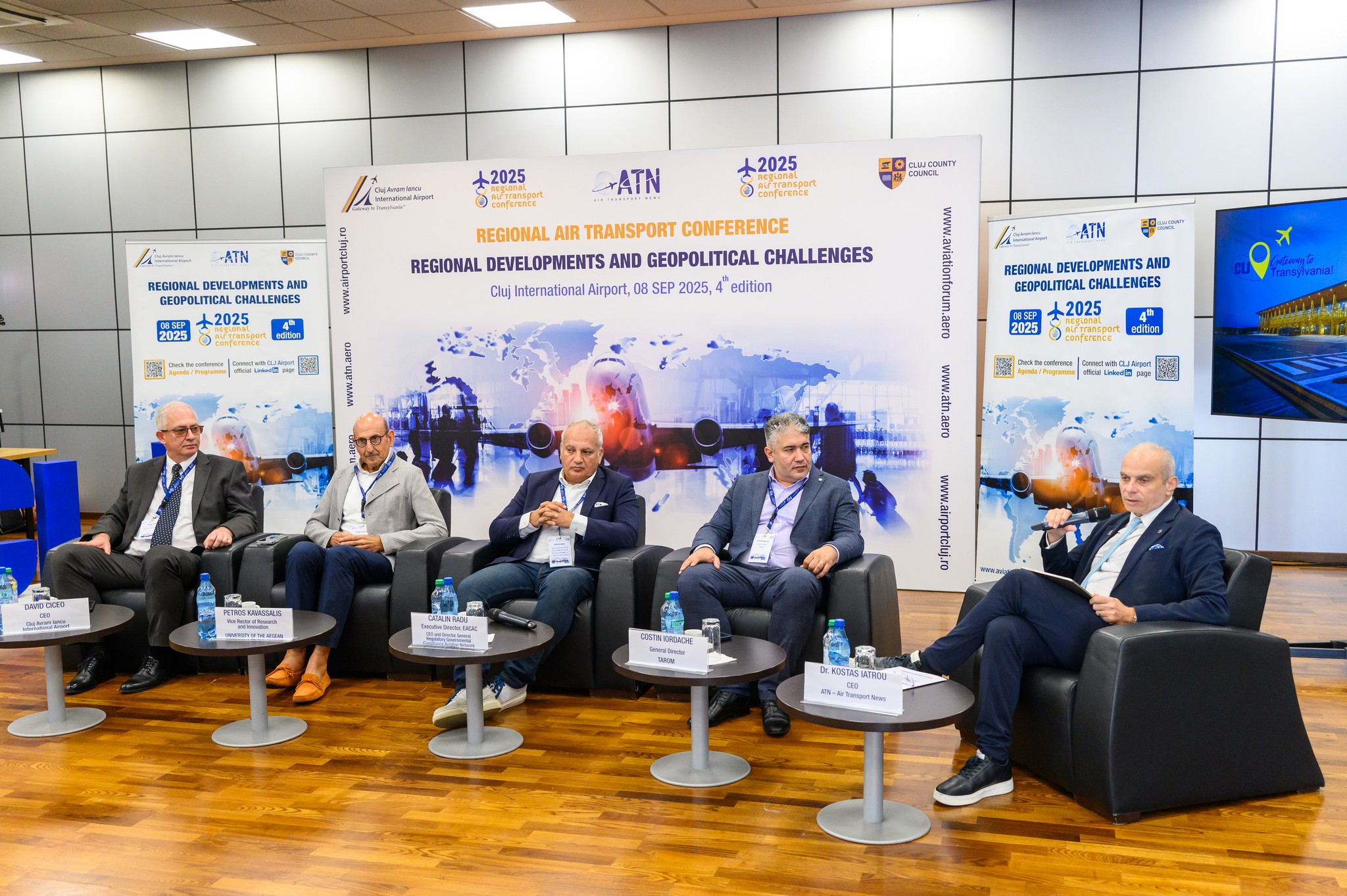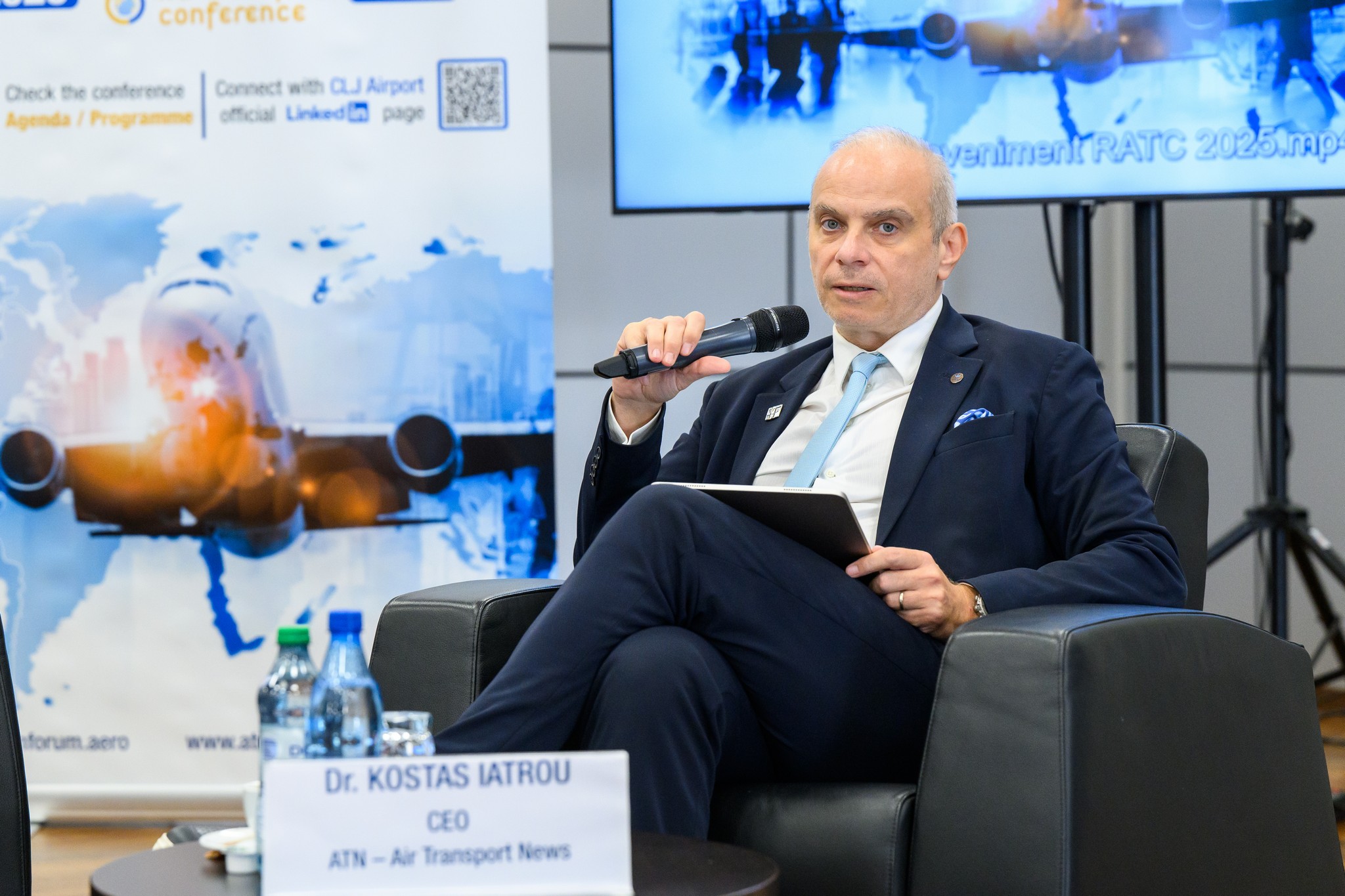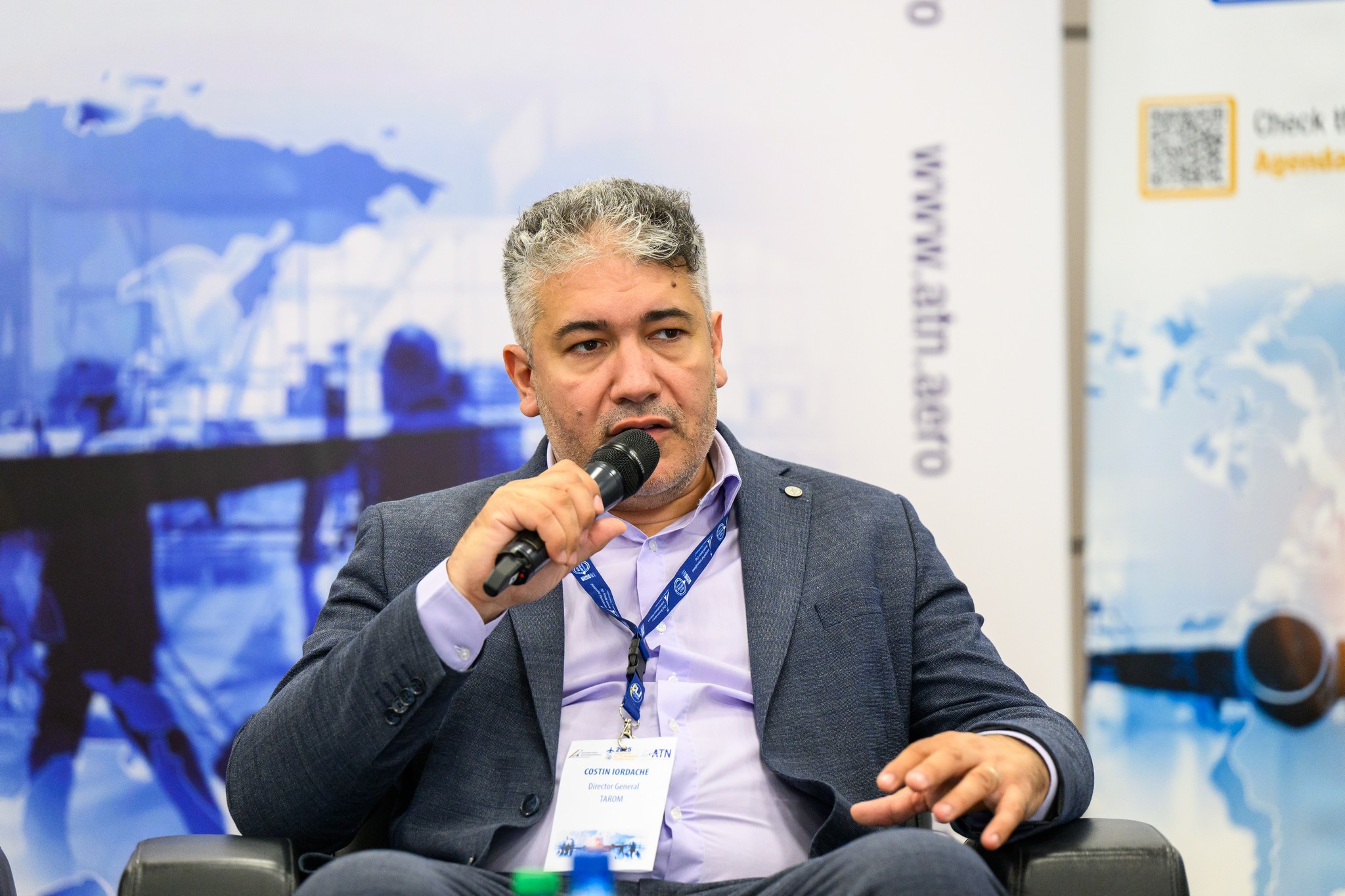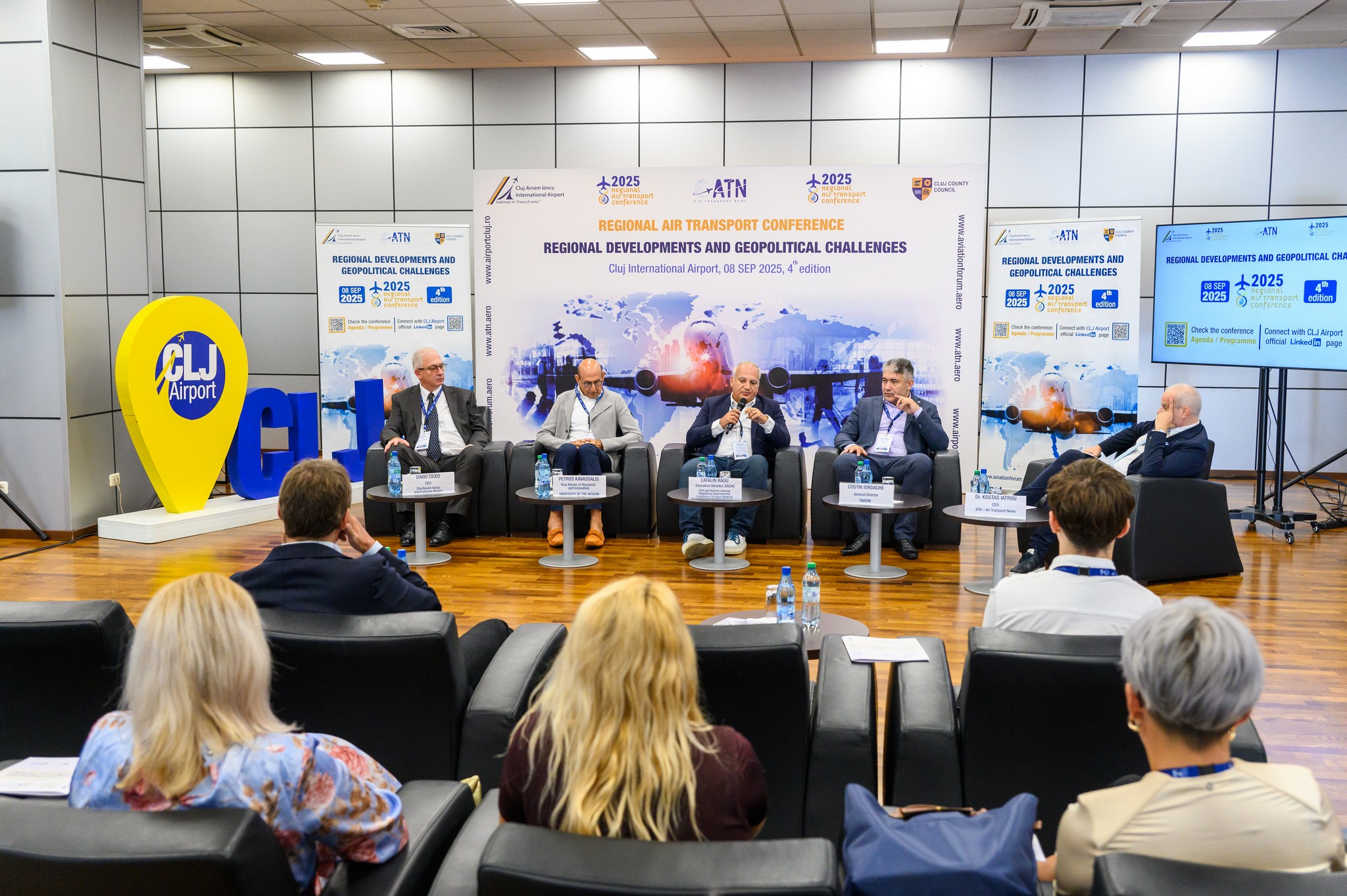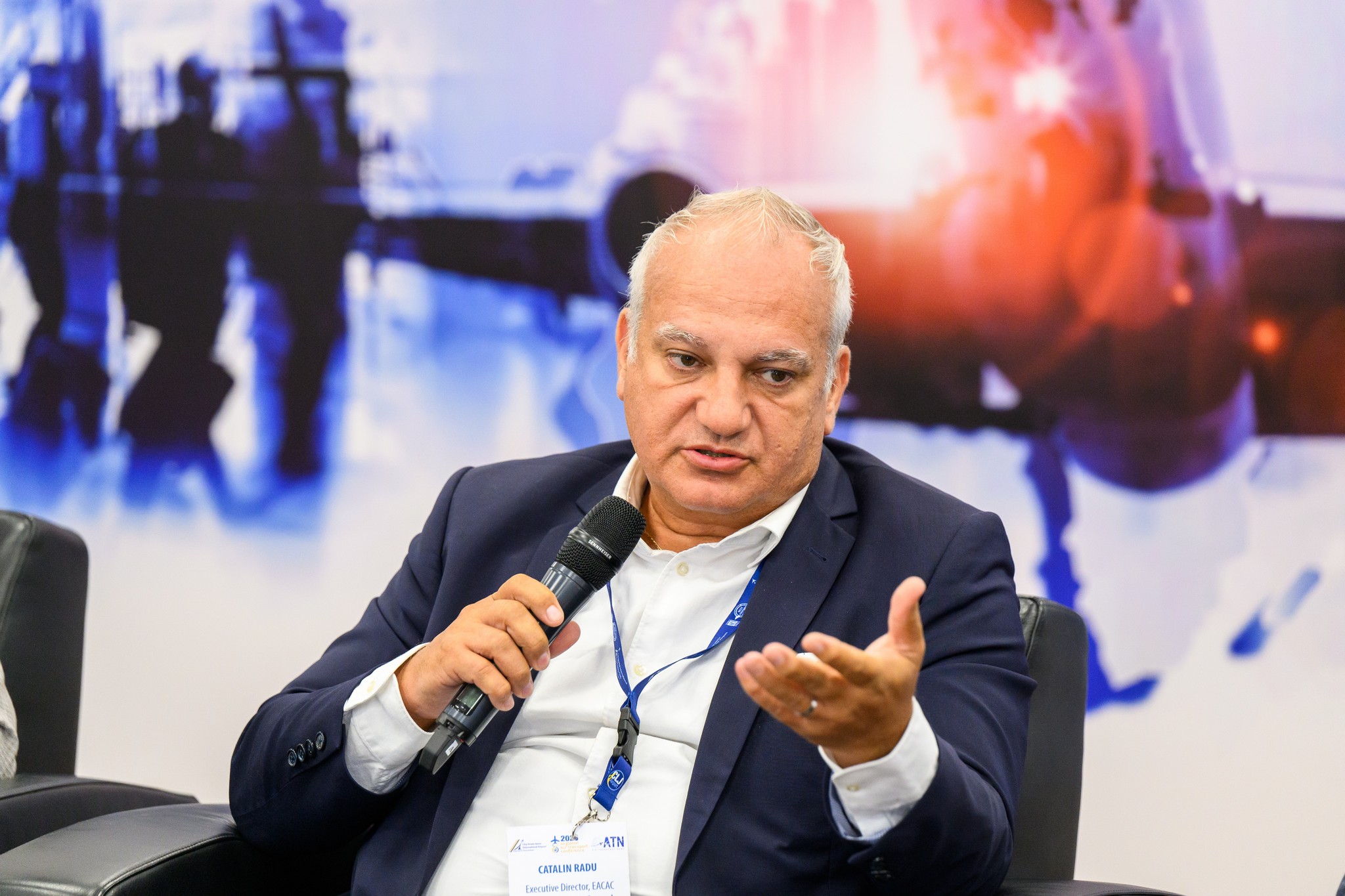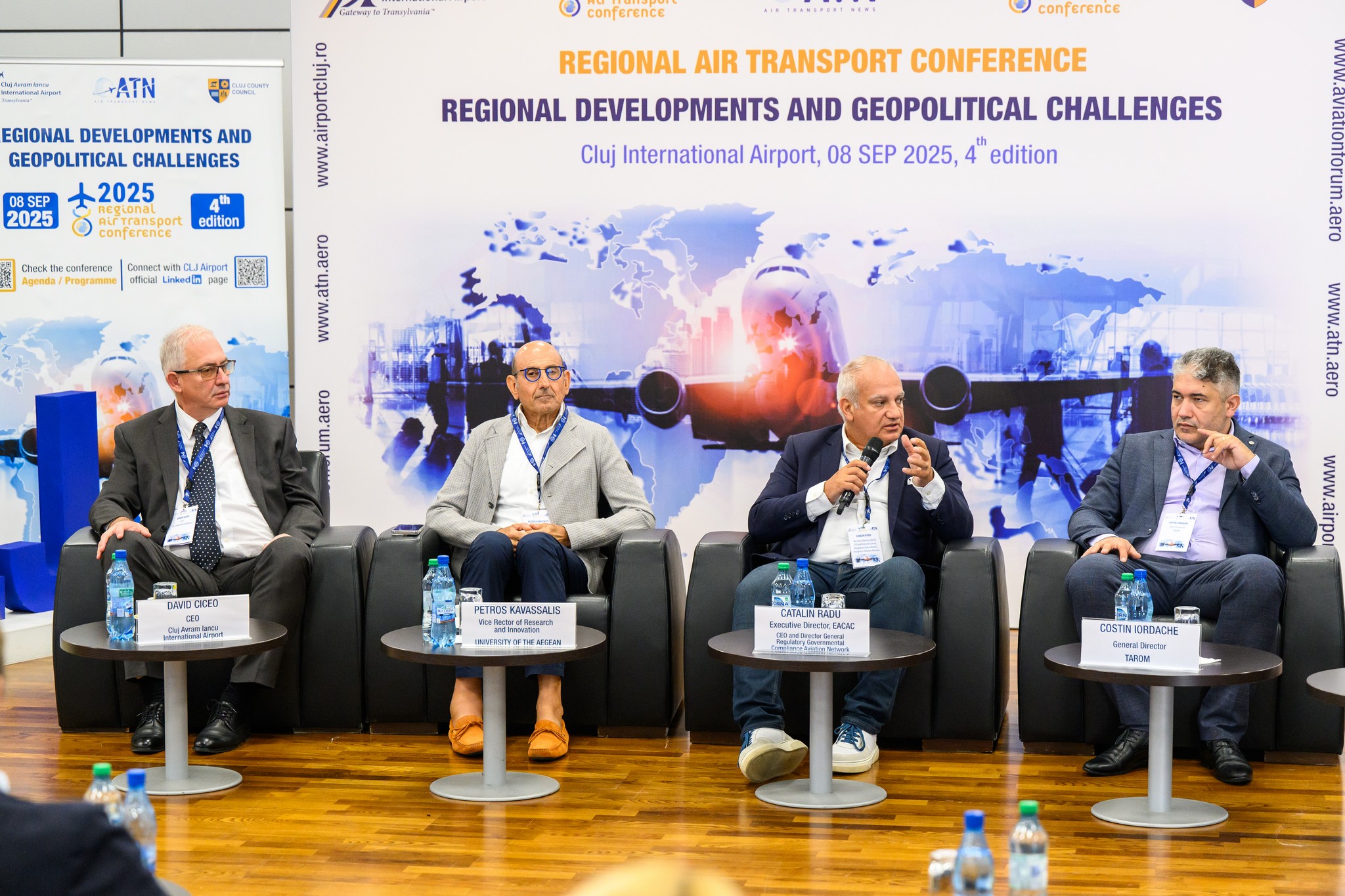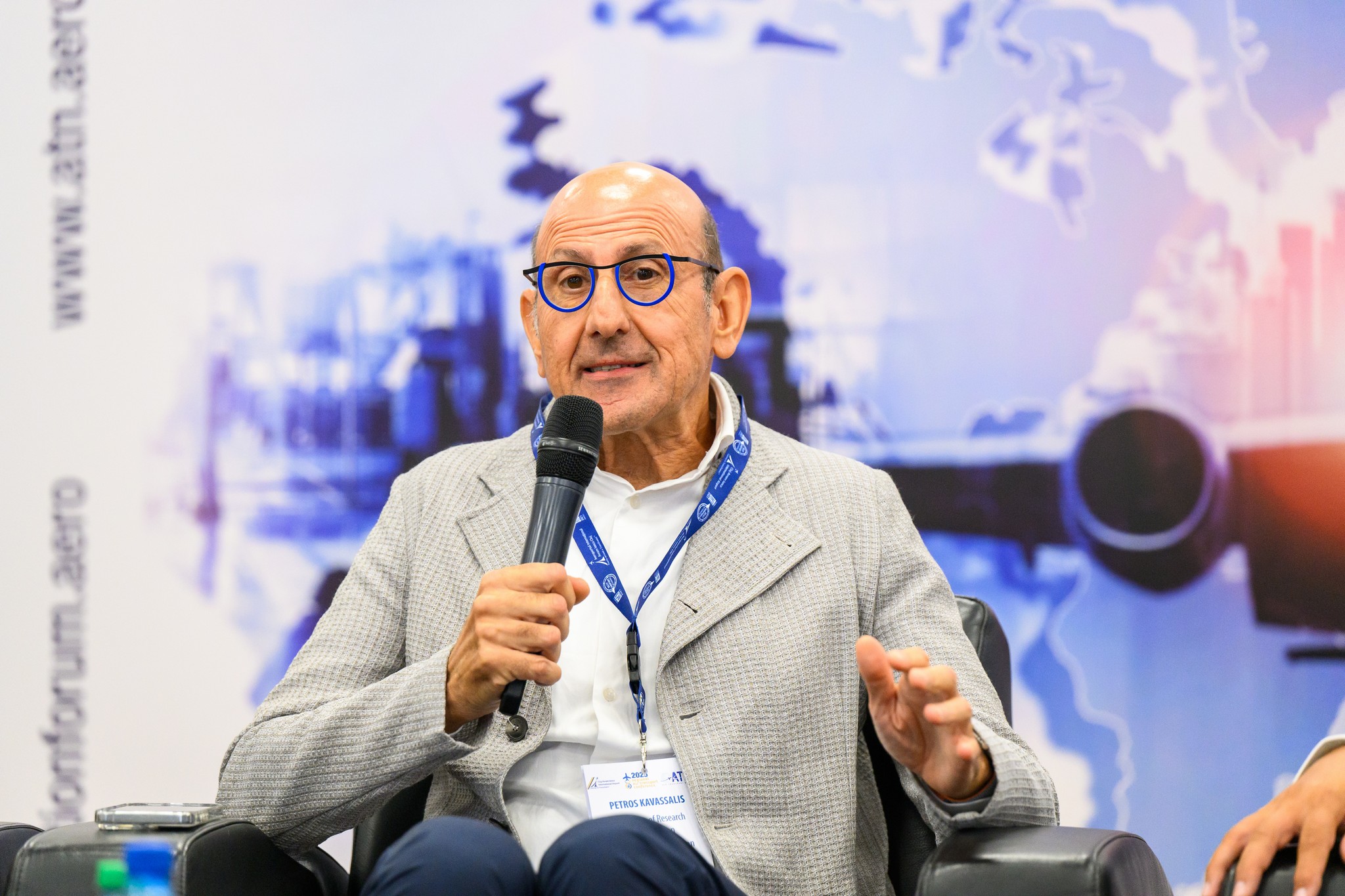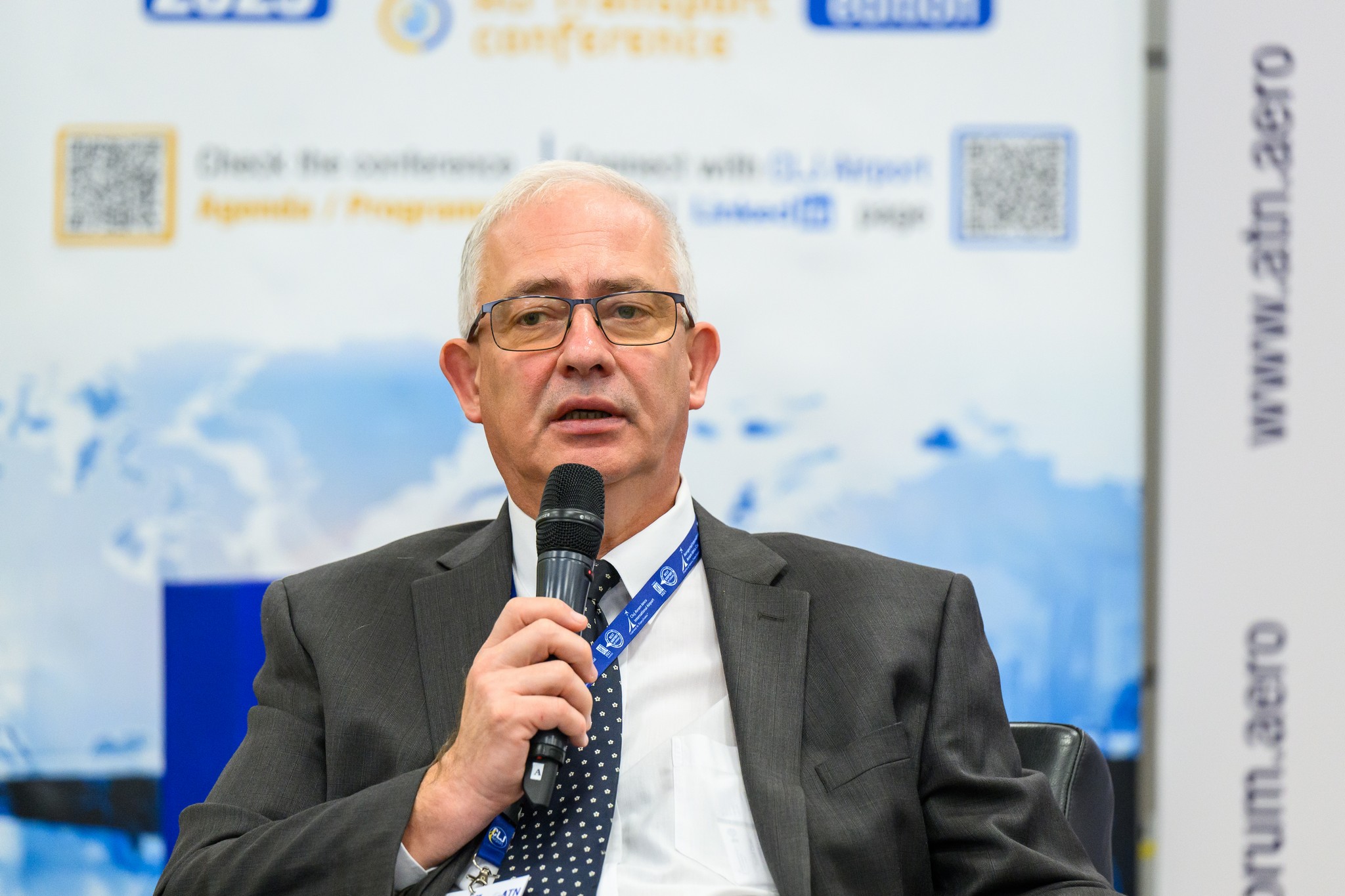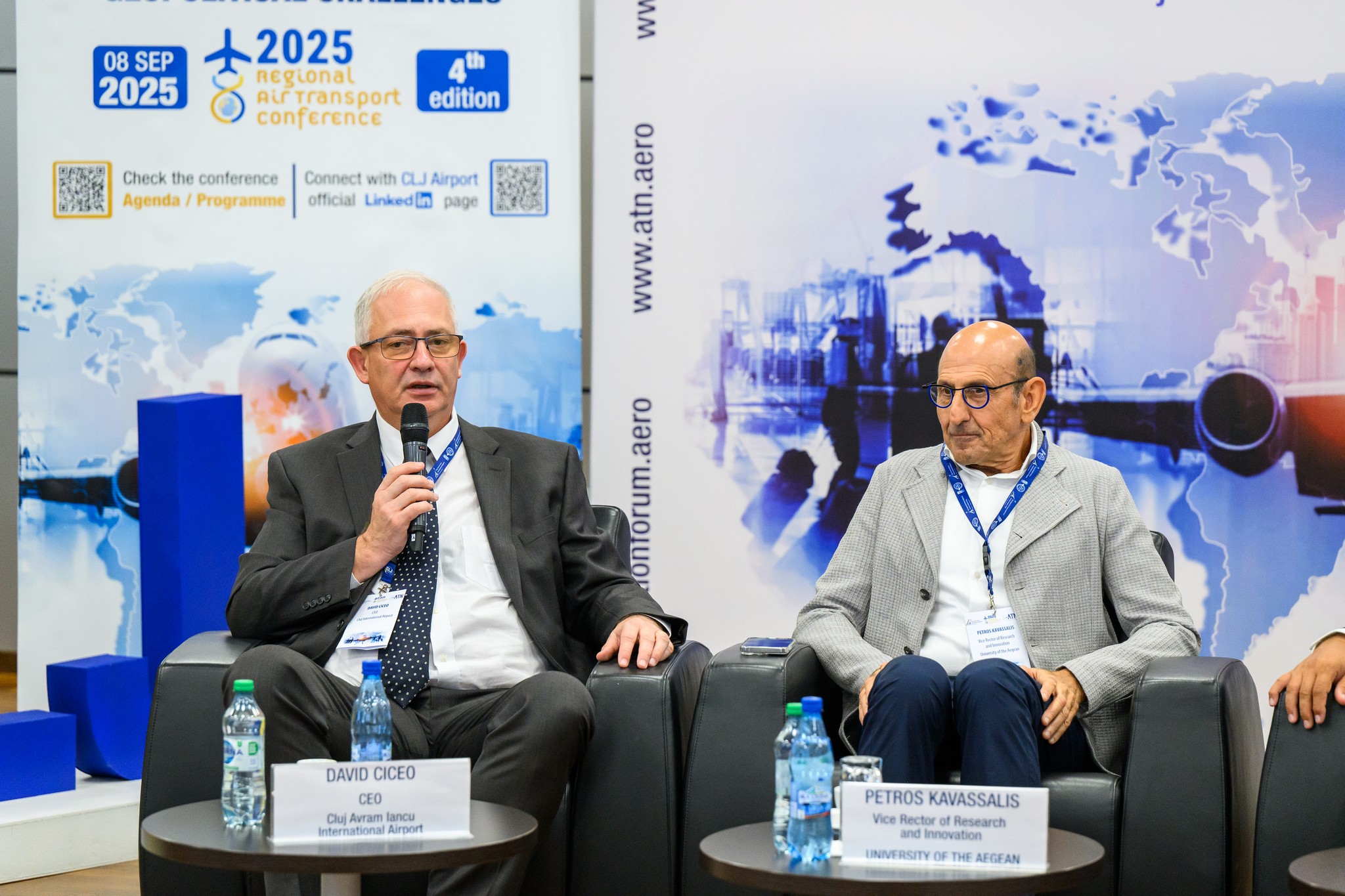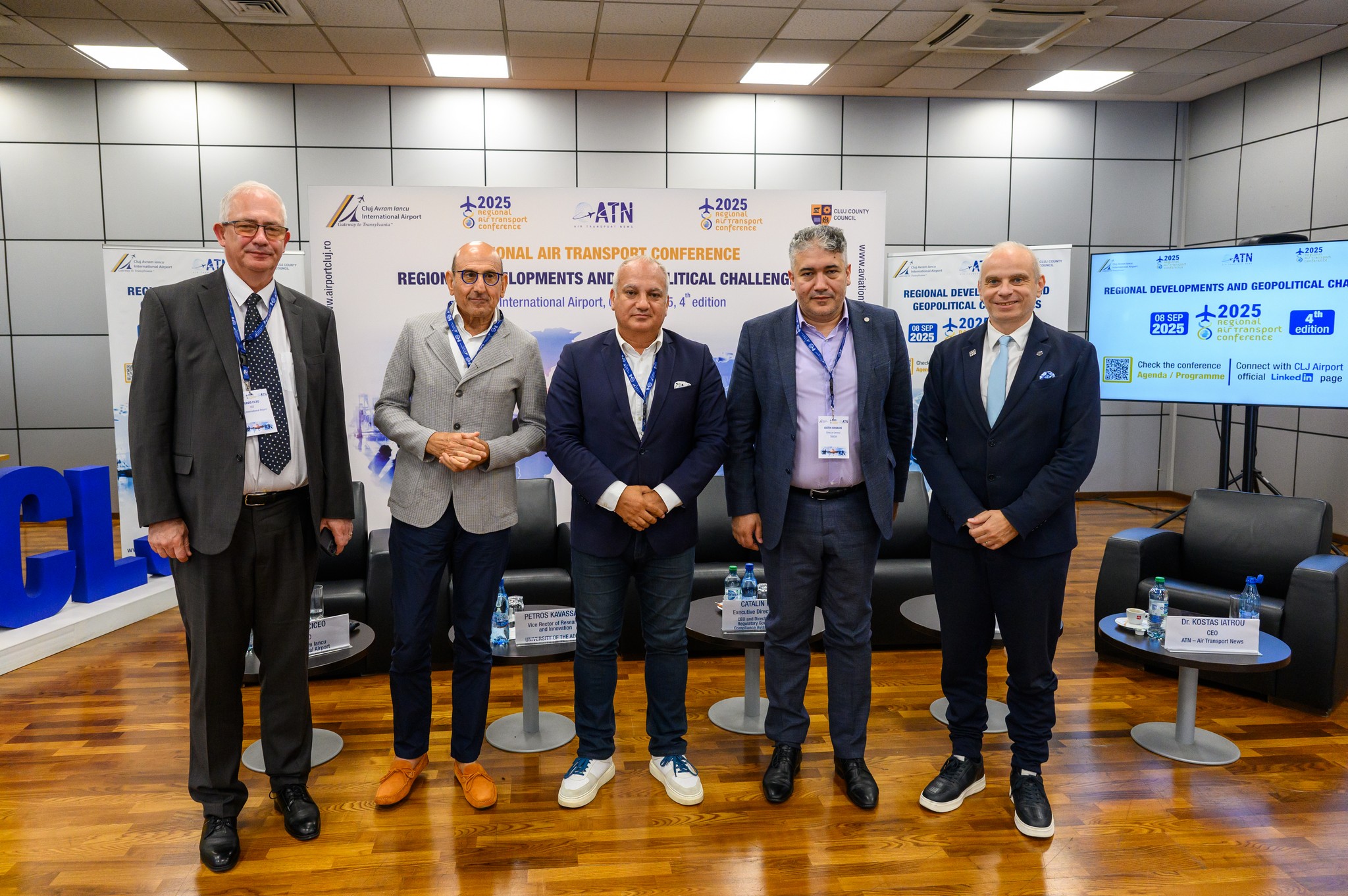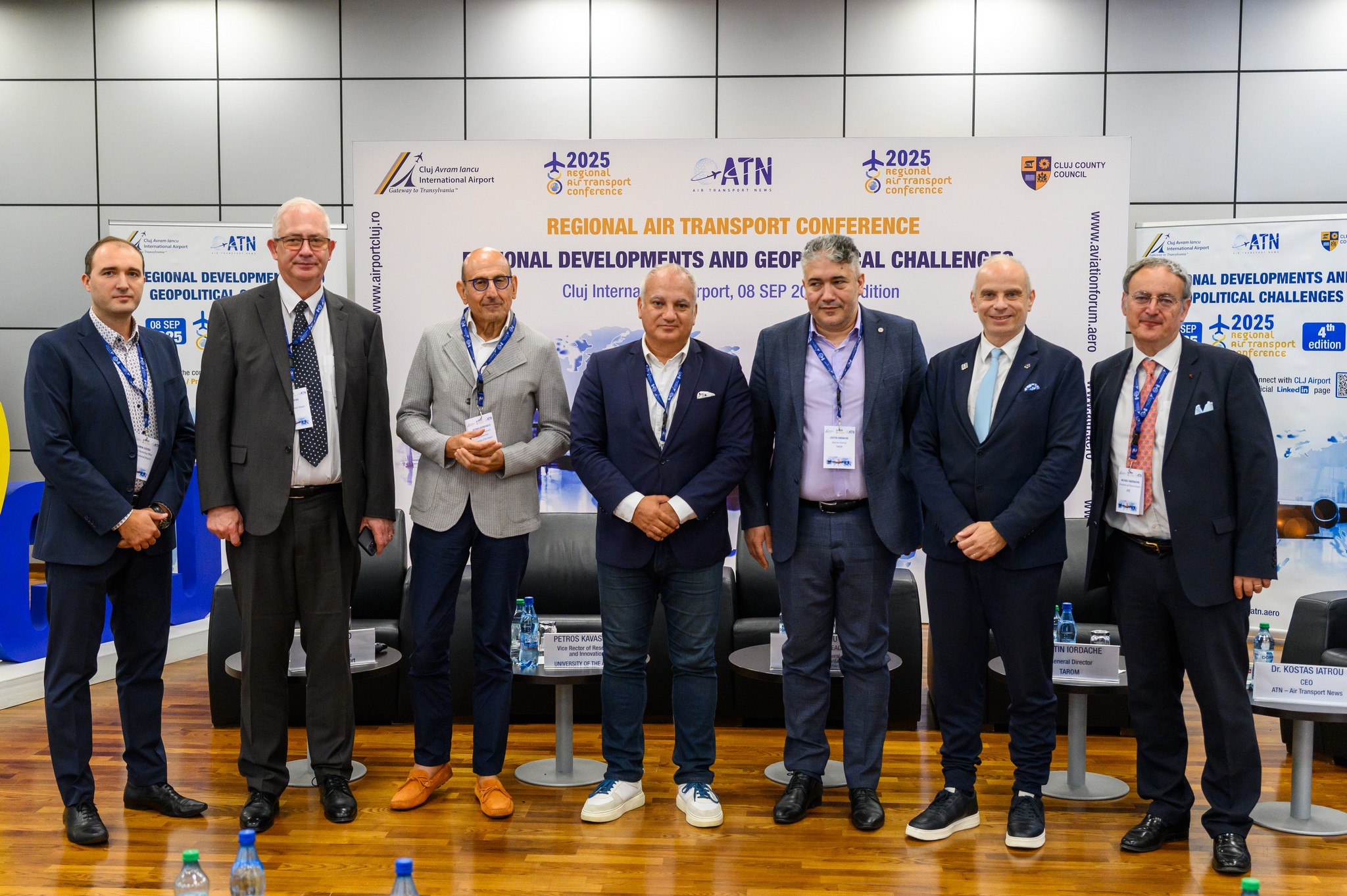
Regional developments and geopolitical challenges
Monday 8 September 2025 – Cluj-Napoca, Romania
Sunday 7 September
19:00 Classical Music Concert – Studio Hall, Hungarian Theatre of Cluj
Evgenia Votanopoulou (piano), Nina Patrikidou (violin) & Giannis Iatrou (violin)
2030 Gala dinner
Monday 8 September
Master of Ceremonies
Sorin Costaş, Head of Marketing Office, Cluj International Airport
09:15 Welcome Addresses
-Dr Kostas Iatrou, CEO, ATN – Air Transport News
-PhD. Eng. David Ciceo, CEO, Cluj International Airport
09:30 Keynote Address
Michael Harrington, President and Director General, AIRE
10:00 Keynote presentation
PhD. Eng. David Ciceo, CEO, Cluj International Airport
10:30 2025 Regional Air Transport Awards ceremony
-Organisation Award
-Corporate Award
-Individual Award
11:00 Coffee break
11:30 Leaders panel
Moderator: Dr Kostas Iatrou, CEO, ATN – Air Transport News
-Costin Iordache, Director General, TAROM
-Catalin Radu, Executive Director, EACAC & CEO and Director General, Regulatory Governmental Compliance Aviation Network
-Associate Professor Petros Kavassalis, Vice Rector of Research and Innovation, University of the Aegean
-PhD. Eng. David Ciceo, CEO, Cluj International Airport
12:50 Conclusions
The 4th edition of the Regional Air Transport Conference was held on September 8, 2025, at Cluj International Airport in Cluj-Napoca, Romania. The event, co-organized with Air Transport News, addressed regional developments and geopolitical challenges in aviation, assembling leading international aviation experts, senior representatives and institutional stakeholders from across Europe to discuss important topics like EU regulations, infrastructure development, and sustainability.
Among the speakers at this event were: Michael Harrington, President and CEO – Association of Airlines in Europe (AIRE formely IACA) the 50 year old – the oldest- airline association in Europe 50 years, Catalin Radu, Executive Director EACAC and Director General – Aviation Government Compliance Network, Costin Iordache, General Manager, TAROM. and Petros Kavassalis, Associate Professor and Vice-Chancellor for Research and Innovation, University of the Aegean, Dr David Ciceo – CEO, Cluj International Airport, as well as Dr Kostas Iatrou – CEO, Air Transport News who moderated the Leaders’ panel.
The main topics debated at the conference were those related to the challenges and opportunities in regional air transport, such as: geopolitical challenges and their impact on regional aviation, modernization and expansion of regional airports to support economic growth and connectivity, sustainability in regional aviation, innovative technologies for reducing emissions and fuel consumption, and respectively addressing the impact of economic crises on the regional aviation industry and adaptation strategies.
On the regulatory side they lamented the overregulation of the EU and of the international organizations that produce too many reports and too many working papers for any aviation entity to be able to cope with and adapt to. They pointed out that the level of regulation in EU compared to the rest of the world puts European airlines at a competitive disadvantage. They greeted the fact Transport and Tourism finally under the same commissioner welcomed development for many countries tourism a great part of national product. They commended the new European Transport Commissioner for speeding up processes and resolving themes that have remained stagnant for years such as the regulation of passenger rights. The new Commissioner is responsible for developing a Sustainable Transport Investment Plan (STIP) to accelerate the decarbonisation of the EU transport sector through strategic investments in alternative fuels and infrastructure like EV charging, expected in the latter half of 2025. This plan will support the deployment of clean transport technologies, such as electric heavy-duty vehicles, and aims to make transport more sustainable, competitive, and resilient across the EU. They pointed out also that European specific policies for peripheral airports are needed in order to increase connectivity. After Covid many airports lost a lot of their connectivity dynamics and Europe has to reorganize it more efficiently. An interesting fact mentioned is the Cluj airport increased its traffic to and from Istanbul for the transportation of Asian workers to Romania. Regional transport is absolutely critical for the economic development as revenue passenger kilometers are directly responsible for GDP. They referred to the examples of Singapore Airlines, Turkish Arlines and Gulf carriers who put focus on connectivity to bring money and people to their area.
One of the main challenges that European aviation needs to tackle is technological innovation. Europe in general needs to catch up with the technological superiority of the US. The question of how regulators can cope with the new technologies such as AI or the integration of drones was raised. The EU and individual governments need to accelerate the innovation path in a concerted way. Part of this technological innovation is digitization which is a big challenge for everyone in the industry from service providers to airlines and airports. Digitization will increase operation efficiency, improve customer experience, help passenger become part of the process, reduce the time passengers spend at the airport as data will move more efficiently between stakeholders and more synergies between service providers and service consumers will be created. The real challenge is not the idea but the strategy of how and to do to reach the process. For regional airports and airlines is also a question of cost passengers expect from them the same level of service they get from hubs and big carriers. Data integration will increase even further safety and security for passengers.
On the question of fuels they said that the new USA policy on oil puts extra pressure. It was stressed that SAFs in Europe are very difficult to find and concentrated in big hub airport, less than 20% airports have SAFs physically present. They referred to the promise of e-SAFs. They stressed the impracticality of “anti-tankering” designed to discourage the practice of “fuel tankering” by requiring airlines to uplift a minimum of 90% of their required annual fuel from EU airports because it can lead to increased emissions due to the extra weight of the fuel and that the return leg will be on non SAF fuel. This lack of availability of SAFs as well the price of SAFs affects regional airlines. ICAO definition of SAF allows feedstock but in Europe the bar was set higher allowing only SAFS got from used fats. This means less SAF available and higher price, three or four times the price of kerosene. This creates big difference on economics as small regional airlines that do not have such negotiating power as big carries.
Another huge challenge is the training and retention of people. They called for the democratization of the cost of industry training with the help of governments. The training of pilots and highly qualified maintenance personnel is long and prohibitively high. On top of that good salaries and solid career paths have to be provided otherwise personnel moves to work in the Gulf area as they do nowadays. An idea put forth to create loyalty among works is search the people that will be trained in specific sources such as schools and universities.
Another issue raised was that of taxation and airport charges. Any increase of taxes goes the passenger fees and affects profitability. For regional airlines slot and airport access is difficult, airport choose slots according to the size of the aircraft. There is a growing tendency of airports to focus on volumes and not on regional routes. Directly connected to that is the fact that when airports become big the negotiation power of the airlines decreases. Only national carries keep concentrating on routes to the capital or the main economic city. The aggressive strategy of LCCs towards regional airports challenging the status quo or the increase of taxes and charges threatens even the survival of these airports that depend on LCCs. It was stressed that in a commercial war it is the consumers that suffer the most as they lose connectivity. It is the government’s obligation to provide not only safety and security to its citizens but also connectivity and productivity.
On the geopolitical level, they described the situation as “a roller coaster environment” as they see predict that the wars will not end in the foreseeable future and there is uncertainty in various parts of the world. It was pointed out that this uncertainty affects non aeronautical revenue too. Confrontations put pressure on the very idea of travelling and on civil aviation. Airlines are affected in different ways- for example the conflict in Russia helped traffic in Central Asia but overall the whole industry is affected. The world changes quickly from the globalised model- in which the long distance aircraft paid a pivotal role- to a model that no one knows yet how it will work. A very interesting development arising from the geopolitical situation is the increasing involvement of aviation to freight transportation to the detriment of other modes of transportation.
On the optimistic side they stressed that despite all the challenges European aviation is booming, it has survived many crises, it will overcome these challenges too.


